IN CELEBRATION OF NEW ARTISTIC LEADERSHIP FOR MICHIGAN OPERA THEATRE AND THE DETROIT SYMPHONY ORCHESTRA



IN CELEBRATION OF NEW ARTISTIC LEADERSHIP FOR MICHIGAN OPERA THEATRE AND THE DETROIT SYMPHONY ORCHESTRA


UPCOMING PERFORMACES ORDER FORM A MESSAGE FROM WAYNE S. BROWN MOT President and CEO
OPERA’S EVERYDAY PEOPLE FOR YOUR SAFETY AND COMFORT
A MESSAGE FROM HOWARD HANDLER A POEM BY MOT BOARD CHAIR ETHAN DAVIDSON
This performance of Cavalleria rusticana: In Concert is being photographed, and video recorded for future television airing.

CLASSIC & SOPHISTICATED. ECLECTIC & DELIGHTFUL.
One of the most ornate and important cultural buildings in Detroit combined with delectable cuisine and impeccable service, your special event is guaranteed to be exceptional.
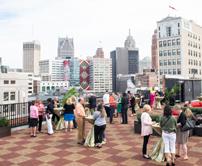

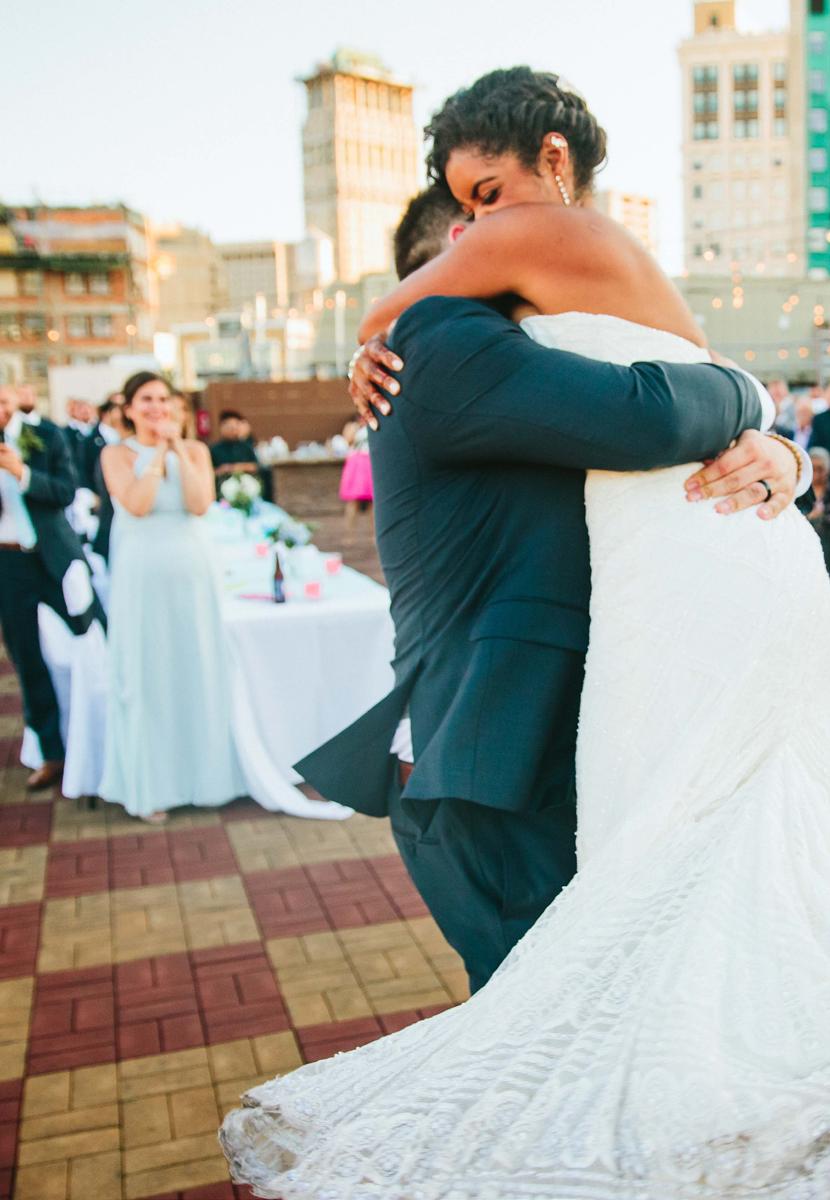
Design your unique experience as the Detroit Opera House provides a dynamic range of both large and small spaces able to accommodate events of all sizes. From the theatre’s main stage, to its picturesque Sky Deck, and everything in between provide unforgettable settings for corporate, social and fundraising events.
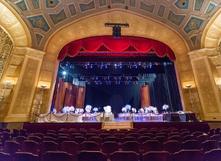

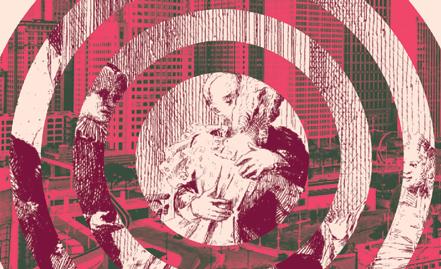
JUN 12, 2021 / 7PM
MEADOW BROOK AMPHITHEATRE
SEP 11, 2021 / 7 PM
SEP 12, 2021 / 7 PM


ARETHA FRANKLIN AMPHITHEATRE
BLISS
SEPT 25, 2021
THE HISTORIC MICHIGAN BUILDING THEATRE
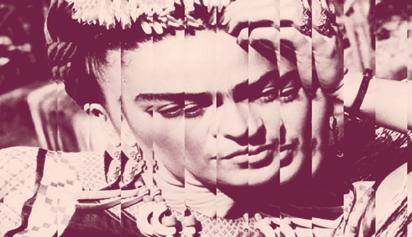
FEB 26, 2022 / 7:30 PM
FEB 27, 2022 / 2:30 PM
MUSIC HALL
APR 2, 2022 / TBA
APR 6, 2022 / 7:30 PM
APR 10, 2022 / 2:30 PM
DETROIT OPERA HOUSE
X: THE LIFE AND TIMES OF MALCOLM X
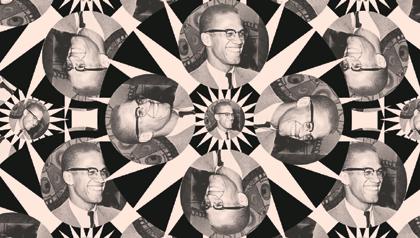
MAY 14, 2022 / 7:30 PM
MAY 19, 2022 / 7:30 PM
MAY 22, 2022 / 2:30 PM
DETROIT OPERA HOUSE
DANCE THEATRE OF HARLEM
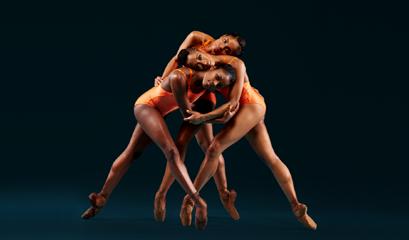
JAN 22, 2022 / 7:30 PM
JAN 23, 2022 / 2:30 PM
DETROIT OPERA HOUSE
BALLET HISPÁNICO— DOÑA PERÓN: THE RISE AND FALL OF A DIVA

MAR 19, 2022 / 7:30 PM
MAR 20, 2022 / 2:30 PM
DETROIT OPERA HOUSE
THE RISE AND FALL OF A DIVADid you enjoy this evening’s concert? Reserve your season subscription today! Simply fill out the information at right, detach and mail it in to the address provided and one of our Box Office associates will contact you to process the subscription that’s just right for you.
While this season may look a little different, with some productions taking place outside of the Opera House, and possible capacity restrictions limiting indoor seating, we want to make sure you get to experience every jaw-dropping moment as we kick off THE NEXT 50 years of opera and dance in Detroit.
For those who purchased an MOT subscription last season, be assured that your renewal packet will be arriving at your door very soon!
I’m an opera lover and want to subscribe.
I’m a dance lover and want to subscribe.
I love both opera and dance and don’t want to miss a single thing!
Name: Street Address: City: State: ZIP: Phone (required):
Email:
Detach this page and mail to:
Detroit Opera House Box Office, 1526 Broadway St., Detroit, MI 48226
Welcome to Michigan Opera Theatre’s (MOT) concert performance of Cavalleria rusticana on the spectacular grounds of Oakland University’s Meadow Brook Amphitheatre! We are delighted that you have chosen to join us for our first “in-person” public event of 2021 due to the Pandemic. The occasion also marks a significant moment as we salute new artistic leadership during the first year of the appointments for Yuval Sharon, the Gary L. Wasserman Artistic Director for Michigan Opera Theatre and Jader Bignamini, Music Director for the Detroit Symphony Orchestra.
On behalf of the MOT organization, I wish to express appreciation to the many individuals, foundations and corporations who have joined together through their presence and their gifts in order that tonight’s performance can take place with the stellar artists with whom you will experience. A special nod goes out to those listed on the program page of tonight’s performance.
This past year has been an enormous hurdle for most of the individual artists who have joined together for the first public performance since the Pandemic. While they have remained resolute in preserving their individual artistry, they have yearned for a return to working as an ensemble and have not had the benefit of their craft being recognized through paid public performances.
I wish to thank 313 Presents for their extraordinary partnership in making it possible for this “in-person” MOT concert performance to take place. Their assistance in accommodating the myriad details and varying protocols required attests to their commitment in providing a comfortable and safe experience for artists and audiences alike.
For those who were unable to join us and for those who are interested in an encore performance, our media partners at DPTV and WRCJ will broadcast this MOT experience with a projected air date of July 9, 2021. This is an example of partnerships that continue to grow for the benefit of our community.
In closing, we are thrilled to be back with “in-person” performances and hope to see you often throughout the coming season!
WAYNE S. BROWN MOT President and CEO

Pietro Mascagni
LIBRETTO
Giovanni Targioni-Tozetti and Guido Manasci, based on a story and play by Giovanni Verga
WORLD PREMIERE
Teatro Costanzi, Rome
May 17, 1890
CONDUCTOR
Jader Bignamini
CHORUS MASTER
Suzanne Mallare Acton
LIGHTING DESIGN
Heather DeFauw
SUPERTITLES
Dee Dorsey
STAGE MANAGER
Nan Luchini
(In order of vocal appearance)
Turiddu
Santuzza
Mamma Lucia
Alfio
Lola
Peasant Women
Brian Jagde
Christine Goerke
Ronnita Miller
Alfred Walker
Catherine Martin
Lucia Helgren, Kristina Riegle
is generously supported by
with additional support from: Richard & Joanne Brodie

Marvin, Betty, and Joanne Danto Family Foundation
Kevin Dennis & Jeremy Zeltzer
Paul & Mary Sue Ewing, Carl & Mary Ann Fontana, Elaine Fontana, Maxine & Stuart Frankel Foundation
Richard Sonenklar & Gregory Haynes, and The estate of Sidney Rose
It must have been quite a shock when the curtain first went up on Cavalleria rusticana in 1890: instead of opera offering a window into another time or a mythic setting, there on the stage was recognizable life in all its grit and glory. Even if Giuseppe Verdi attempted to capture his contemporaries in La traviata 25 years earlier, he nevertheless maintained an emphasis on a higher class – and kept Violetta in distant Paris. Mascagni went where Verdi couldn’t yet go: he sought to capture his time. And from its sensational opening night in Rome, Cavalleria rusticana ushered in a new form of opera: verismo.
What makes verismo so inspiring and continuously relevant is not just the idea of naturalism, but more importantly the notion that everyday life could be the subject of the grandest of all art forms. Mascagni took the epic scale of opera and used it to magnify the experiences of people who could be our neighbors; people we pass on the street; those whose private lives might seem forever closed off to us. Opera’s unique blend of music, poetry, and theater open up those closed experiences for all of us to share, to grow, and to see the world through new eyes.
Starting off with Mascagni indicates where we are going throughout our 21/22 season: Mascagni’s colleague (and one-time roommate!) Giacomo Puccini’s form of verismo will be heard at the end of the season, as the life-like, lovable artists of his eternal masterpiece La bohème will return to the stage of the Detroit Opera House in April. And
these great works have conversation partners with three contemporary works – Blue, by Jeanine Tesori and Tazewell Thompson; Frida, by Robert Xavier Rodriguez; and X by Anthony, Thulani, and Kip Davis – who share that idea that opera can open up new possibilities in the urgent task of understanding each other better. We hope you will join us for each of these productions throughout the year!
As we re-emerge from the pandemic, we are recommitting ourselves to the notion that Mascagni set forth with Cavalleria: opera can reflect our lives immediately, magnificently, and unforgettably.
Thank you for being with us tonight!


On behalf of Michigan Opera Theatre, we are thrilled to welcome you back to experience live opera in Detroit!
• If you experience any known symptoms of COVID-19, we ask that you refrain from entering the Amphitheatre. Symptoms include a fever of 100.4 or higher, cough, shortness of breath, difficulty breathing, chills, muscle aches, headaches.
• While masks are no longer required for outdoor gatherings, guests are more than welcome to remain masked during the show.
• Meadow Brook has adopted a NO BAG policy. Diaper bags and bags needed due to medical necessity are allowed. Bags of any size will be screened by security.
• The performance will proceed rain or shine. In the event of rain, ponchos are encouraged as umbrellas block the view of guests behind you.
• Please remember to be respectful of others and watch your distance throughout the venue.
• Lawn seating for this event has been designed in socially distanced areas for groups of four.
• Blankets are allowed for opera-lovers seated on the lawn. Lawn chairs will be available for rental, and ponchos and blankets will be available for purchase.
• For your comfort and safety, hand sanitizer stations will be available throughout the venue.
• To reduce hand to hand contact, Meadow Brook is highly encouraging guests to go “cash-less.” All major credit cards are accepted throughout the venue.
• Please be aware that this performance will be recorded for future broadcast, and will also be professionally photographed.

On behalf of 313 Presents, I am thrilled to safely welcome you back to experience Meadow Brook again.
313 Presents’ mission is to deliver amazing entertainment and alive moments inspired by the soul of Detroit. What better way to carry out that mission than to welcome one of Detroit’s pillars of arts and culture, Michigan Opera Theatre, to Meadow Brook Amphitheatre for the performance of Cavalleria rusticana: In Concert, presented in cooperation with the Detroit Symphony Orchestra.
Meadow Brook Amphitheatre on the Campus of Oakland University has seen an eclectic mix of programming flourish over the years. Its unique ambiance and intimate setting provides an exceptional backdrop to showcase this renowned Italian opera.
We’re honored that MOT chose Meadow Brook Amphitheatre to be a part of their 2021-22 season. The opportunity to work with luminary Artistic Director, Yuval Sharon, and all of our friends at Michigan Opera Theatre has been a tremendous joy during a challenging time for live events and the world.

Thank you for your patience, understanding, and most of all support over the past year, and now, as the curtain rises once again.
Enjoy the show!
I have been nervous not knowing how I should react the first time I encounter you again face to face unmediated by a screen with or without masks . . .
I have been nervous: how shall we encounter each other?
But a couple of disconnected things rattle through my head:
Writing of love and emergence from the deep isolation of winter the great Poet-King Solomon writes: Let’s walk together for the winter is now past the rains have moved through new blossoms are seen we have touched the time of song and the voice of a turtledove is heard in our land
So Solomon tells us of new beginnings new flowers and the time of song
and I find myself in a garden . . .
and I recognize another old friend the great Persian poet Saadi of Shiraz
And I ask him: Why does Solomon speak of flowers and music at such a time?
And Saadi answers: If I had but two loaves of bread I would sell one and buy hyacinths to feed my soul
Welcome back, my dear friend, to Michigan Opera Theatre, welcome nourish your soul touch the time of song
 ETHAN DAVIDSON Board Chair Michigan Opera Theatre
ETHAN DAVIDSON Board Chair Michigan Opera Theatre
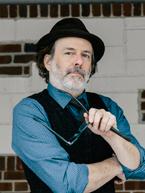
JULY 1, 2020 – JUNE 30, 2021
CHAIR
Ethan Davidson
VICE CHAIR
Joanne Danto
VICE CHAIR
Peter Oleksiak
VICE CHAIR
Ankur Rungta
PRESIDENT/CEO
Wayne S. Brown
SECRETARY
Gene P. Bowen
TREASURER
Enrico Digirolamo
IMMEDIATE PAST CHAIR
R. Jamison Williams
Naomi Andre
Lee Barthel
Richard A. Brodie
Elizabeth Brooks
James Ciroli
Julia Donovan Darlow
Kevin Dennis
Shauna Ryder Diggs
Sonal Dubey
Cameron B. Duncan
Michael Einheuser
Marianne Endicott
Paul E. Ewing
Richard G. Goetz
John P. Hale
Devon Hoover
Danialle Karmanos
Mary Kramer
Barbara Kratchman
Thomas M. Krikorian
Denise Lewis
Alphonse S. Lucarelli
Donald Manvel
Ali Moiin
Donald Morelock
Sara Pozzi
Paul Ragheb
Ruth Rattner
Terry Shea
Matthew Simoncini
Richard Sonenklar
Lorna Thomas
C. Thomas Toppin
Jesse Venegas
Gary Wasserman
Ellen Hill Zeringue
Margaret Allesee
Shelly Cooper
Marjorie M. Fisher
Barbara Frankel
Herman Frankel
Jennifer Nasser
Audrey Rose
William Sandy
Richard Webb
JULY 1, 2020 – JUNE 30, 2021
Kenn and Liz Allen
Sarah Allison
Lourdes V. Andaya
Naomi Andrè
Harold Mitchell Arrington
Beverly Avadenka
Lee and Floy Barthel
Mark and Caprice Baun
Debra Bernstein-Siegel
Joseph and Barbra Bloch
Gene P. Bowen
Betty J. Bright
Richard and Joanne Brodie
Elizabeth Brooks
Robert Brown and Geraldine Ford-Brown
Wayne S. Brown and Brenda Kee
Charles D. Bullock
Michael and Mary Chirco
James and Elizabeth Ciroli
Gloria Clark
Avern and Lois Cohn
Thomas Cohn
Françoise Colpron
William and Kelly Connell
Peter and Shelly Cooper
Joanne Danto and Arnold Weingarden
Helen Daoud
Julia D. Darlow and John C. O’Meara
Maureen D’Avanzo
Lawrence and Dodie David
Ethan and Gretchen Davidson
Kevin Dennis and Jeremy Zeltzer
Cristina DiChiera
Karen V. DiChiera
Lisa DiChiera
Shauna Ryder Diggs
Enrico and Kathleen Digirolamo
Debbie Dingell
Mary Jane Doerr
Dilip and Sonal Dubey
Cameron B. Duncan
Michael Einheuser
Kenneth and Frances Eisenberg
Marianne Endicott
Alex Erdeljan
Fern R. Espino and Thomas Short
Paul and Mary Sue Ewing
Margo Cohen Feinberg and Robert Feinberg
Oscar and Dede Feldman
Carl and Mary Ann Fontana
Elaine Fontana
Barbara Frankel and Ron Michalak
Barbara Garavaglia
Yousif and Mara Ghafari
John Gillooly and Ebony Duff
Richard and Aurora Goetz
Carolyn Gordon
Samuel and Toby Haberman
John and Kristan Hale
Eugene and Donna Hartwig
Doreen Hermelin
Derek and Karen Hodgson
Devon Hoover
Alan and Eleanor Israel
Una Jackman
Don Jensen and Leo Dovelle
Kent and Amy Jidov
Gary and Gwenn Johnson
George Johnson
Jill Johnson
Ellen Kahn
Peter and Danialle Karmanos
Stephanie Germack Kerzic
Mary Kramer
Michael and Barbara Kratchman
Thomas and Deborah Krikorian
Linda Dresner and Ed Levy, Jr.
Denise J. Lewis
Mado Lie
Arthur and Nancy Liebler
Stephan and Marian Loginsky
Mary Alice Lomason
Alphonse S. Lucarelli
Denise Lutz
Donald Manvel
Florine Mark
Ronald and Zvjezdana Martella
Jack Martin and Bettye Arrington-Martin
Dexter Mason
Benjamin Meeker and Meredith Korneffel
Phillip D. and Dawn Minch
Ali Moiin and William Kupsky
Donald and Antoinette Morelock
E. Michael and Dolores Mutchler
Allan and Joy Nachman
Juliette Okotie-Eboh
Peter Oleksiak
Linda Orlans
Richard and Debra Partrich
Spencer and Myrna Partrich
Daniel and Margaret Pehrson
Sara Pozzi
Waltraud Prechter
Paul and Amy Ragheb
John and Terry Rakolta
Ruth F. Rattner
Roy and Maureen Roberts
Patricia H. Rodzik
David and Jacqueline Roessler
Audrey Rose
Anthony and Sabrina Rugiero
Ankur Rungta and Mayssoun Bydon
Hershel and Dorothy Sandberg
Donald and Kim Schmidt
Mark and Lois Shaevsky
Arlene Shaler
Terry Shea
Matthew and Mona Simoncini
Sheila Sloan
Phyllis F. Snow
Richard A. Sonenklar and Gregory Haynes
Mary Anne Stella
Ronald F. Switzer and Jim F. McClure
Lorna Thomas
C. Thomas and Bernie Toppin
James G. Vella
Jesse and Yesenia Venegas
Marilyn Victor
Bradley Wakefield and Meghann Rutherford
Gary L. Wasserman
R. Jamison and Karen Williams
Joan Young and Thomas L. Schellenberg
Mary Lou Zieve
Ellen Hill Zeringue
Marcia Applebaum
Agustin Arbulu
Preston and Mary Happel
Pat Hartmann
Robert and Wally Klein
William and Marjorie Sandy
Roberta Starkweather
Amelia H. Wilhelm
Lynn† and Ruth† Townsend
Avern and Joyce† Cohn
John and Mardell De Carlo
David† and Karen V. DiChiera
Aaron† and Bernice† Gershenson
Donald† and Josephine Graves†
John and Gwendolyn† Griffin
Harry† and Jennie† Jones
Wade† and Dores † McCree
Harry J. Nederlander†
E. Harwood Rydholm†
Neil and Phyllis Snow
Richard† and Beatrice† Strichartz
Robert† and Clara† “Tuttie” VanderKloot
Sam† and Barbara† Williams
Theodore† and Virginia† Yntema
Easter morning. Dawn. The natural beauty of the Sicilian landscape unfolds in an orchestral prelude before a lone voice is heard in the distance, singing a love hymn to a beautiful woman named Lola. (We later learn this is the luckless Turiddu, enamored with the wife of the wealthy carter Alfio.) The voice dissolves in the air, and the orchestra once again paints a picture of the landscape in bloom. Soon the farmers and peasants of the town can be heard on their way to Easter Sunday services. Free from labor on this sacred day, the people sing of the sweet smell of orange blossoms and other spring enchantments.
Separated from the chorus, a woman enters in distress. She is Santuzza, and she pleads with Turiddu’s mother, Mamma Lucia, for help finding her son. Sensing trouble, Mamma Lucia first shuns Santuzza’s urgent pleas; but when Lucia invites Santuzza into her home, the young girl refuses: “I am excommunicated.” Before Lucia can learn more, the sound of whips and jingling bells signal Alfio’s boastful return for the Easter holiday. Alfio greets Mamma Lucia and asks for Turiddu, but when he hears that Turiddu is away fetching wine for his mother’s tavern, Alfio claims to have seen Turiddu just this morning near his house. Before this confusion can be cleared up, Alfio runs home to get dressed for the service, which is just about to start.
The townspeople sing an Easter hymn, and although she feels disowned by the church, Santuzza seems to lead them in a powerful prayer (‘Inneggiamo, il Signor non è morto’). As everyone enters the cathedral, Santuzza and Mamma Lucia stay behind. Santuzza now opens her heart and reveals everything: When Turiddu came back from the army, he discovered his former
love Lola married to Alfio. In his heartbreak, Turiddu turned to Santuzza, who fell in love with him. (Reading between the lines, some interpreters of the opera believe Santuzza is now pregnant with Turiddu’s child.) Lola, now jealous of Santuzza, reignited Turiddu’s love for her, and their revived affair prompts Turiddu to abandon Santuzza. In her shame, Santuzza refuses to enter the church and instead asks Mamma Lucia to pray for her.
Turiddu appears on his way to the church and encounters Santuzza. He brusquely tries to get past her and her questioning about where he was that morning. But when she confronts him directly about Lola, their impassioned argument threatens to erupt into violence: “Would you have me killed?” the defiant Turiddu asks. “Beat me and insult me, I will still love you,” Santuzza hopelessly confesses. In a stormy silence, Lola’s carefree little song about a flower is heard in the distance, interrupting the heated duet. Lola appears on the scene and is surprised to see Turiddu speaking to Santuzza outside the church. Lola asks Santuzza why she isn’t with the community inside; Santuzza replies that on this Easter Sunday, only those without sin should enter the church. Lola lightheartedly claims no sin and breezily enters the church. Santuzza holds Turiddu back, and with great tenderness she pleads not to be abandoned. When she fails and Turiddu renounces her “madness” with finality, she curses him with a chilling line: “a te la mala Pasqua, spergiuro!” Alfio enters, now dressed for the service. He encounters Santuzza, who tells the cheated husband about Lola and Turiddu’s affair. Enraged, Alfio swears revenge “this very day” as he storms off.
A sudden calm is ushered in with the famous Intermezzo, a wordless hymn and a bold contrast to the mounting dramatic tension of the story. In a staged version of the opera, this might be the moment the chorus is seen exiting the church or some other such stage business. In this concert setting, the Intermezzo offers an opportunity for deeper reflection: in the
wake of such turbulent and extreme emotions, with characters treating each other without mercy or pity, perhaps grace and spirituality can only be found in the silent surroundings of our natural environment?
The townspeople head home. Turiddu wants Lola to stay with him, but she leaves to find Alfio. Turiddu invites the townspeople to his mother’s inn with a forced and off-kilter drinking song. The slightly frenzied jollity is disrupted by Alfio, who offers his own sinister toast; when Turiddu offers him a glass, Alfio ominously refuses it. The tension between the two men is clear to the villagers, who all nervously leave the scene. Left alone, Alfio needs no words to convey to Turiddu that he knows the truth, and he challenges his rival. The gravity of the situation sinks in, and Turiddu is overcome with remorse for how he treated Santuzza – although his sudden conversion does nothing to soften Alfio’s thirst for revenge.
Light-headed from too much drinking, Turiddu now calls for his mother and asks for her blessing as he departs. “If I am never to return,” he says, “take care of Santuzza like your own daughter.” Mamma Lucia is frightened and bewildered by Turiddu’s desperate farewell. Santuzza appears and embraces Mamma Lucia as her own mother, as the bloodcurdling scream of the townspeople announce the news: “They have killed Turiddu!”
Jader Bignamini was introduced as the 18th music director of the Detroit Symphony Orchestra in January 2020, commencing with the 20202021 season. He kicked off his tenure as DSO Music Director with the launch of DSO Digital Concerts in September 2020, conducting works by Copland, Puccini, Tchaikovsky, and SaintGeorges. His infectious passion and artistic excellence set the tone for the season ahead, creating extraordinary music and establishing a close relationship with the orchestra.
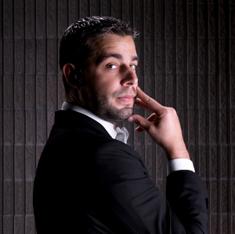
In December, Jader returned to the DSO to lead a triumphant performance of Beethoven’s Symphony No. 3, “Eroica,” and music by Richard Strauss and Jessie Montgomery. In May 2021, he closed his DSO season with four programs including performances with violinist Midori and pianist Orli Shaham. Jader will conduct 10 subscription weeks in the DSO’s upcoming 2021-22 season, including concerts with violinists Hilary Hahn and Gil Shaham, pianist JeanYves Thibaudet, cellist Alisa Weilerstein, and saxophonist Branford Marsalis.
A native of Crema, Italy, Jader studied at the Piacenza Music Conservatory and began his career as a clarinetist with Orchestra Sinfonica La Verdi in Milan, later serving as the group’s resident conductor. Captivated by the big symphonic works of Mahler and Tchaikovsky, Jader explored their complexity and power,
puzzling out the role that each instrument played in creating a largerthan-life sound. When he conducted his first professional concert at the age of 28, it did not feel like a departure, but an arrival.
In the years since, Jader has conducted some of the world’s most acclaimed orchestras and opera companies in venues across the globe including working with Riccardo Chailly on concerts of Mahler’s Eighth Symphony in 2013 and his concert debut at La Scala in 2015 for the opening season of La Verdi Orchestra. Recent highlights include debuts with the Houston, Dallas, and Minnesota symphonies; Osaka Philharmonic and Yomiuri Nippon Symphony Orchestra in Tokyo; with the Metropolitan Opera, Vienna State Opera, and Dutch National Opera (Madama Butterfly); Bayerische Staatsoper (La Traviata); I Puritani in Montpellier for the Festival of Radio France; Traviata in Tokyo directed by Sofia Coppola; return engagements with Oper Frankfurt (La forza del destino) and Santa Fe Opera (La Bohème); Manon Lescaut at the Bolshoi; Traviata, Madama Butterfly, and Turandot at Arena of Verona; Il Trovatore and Aida at Rome’s Teatro dell’Opera; Madama Butterfly, I Puritani, and Manon Lescaut at Teatro Massimo in Palermo; Simon Boccanegra and La Forza del Destino at the Verdi Festival in Parma; Ciro in Babilonia at Rossini Opera Festival and La Bohème, Madama Butterfly, and Elisir d’amore at La Fenice in Venice.
When Jader leads an orchestra in symphonic repertoire, he conducts without a score, preferring to make direct eye contact with the musicians. He conducts from the heart, forging a profound connection with his musicians that shines through both onstage and off. He both embodies and exudes the excellence and enthusiasm that has long distinguished the DSO’s artistry. A jazz aficionado, he has also immersed himself in Detroit’s rich jazz culture and the influences of American music.
Soprano Christine Goerke (MOT productions include Elektra and Twilight: Gods) has appeared in many of the most prestigious opera houses of the world including the Metropolitan Opera, Lyric Opera of Chicago, San Francisco Opera, Royal Opera House, Paris Opera, Teatro alla Scala, Deutsche Oper Berlin, Teatro Real in Madrid, and the Saito Kinen Festival. She has sung much of the great soprano repertoire, beginning with the Mozart and Handel heroines and now moving into dramatic Strauss and Wagner roles.
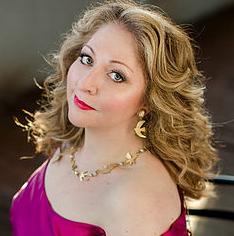
Goerke has also appeared with a number of leading orchestras including the New York Philharmonic, Boston Symphony Orchestra, Chicago Symphony Orchestra, Cleveland Orchestra, Los Angeles Philharmonic, Radio Vara, the BBC Symphony Orchestra at the BBC Proms, and both the Hallè Orchestra and the Royal Scottish National Symphony at the Edinburgh International Festival.
Goerke’s recording of Vaughan Williams’ A Sea Symphony with Robert Spano and the Atlanta Symphony Orchestra won the 2003 Grammy Award for Best Classical Recording and Best Choral Performance. Other recordings include the title role in Iphigenie en Tauride for Telarc and Britten’s War Requiem, which won the 1999 Grammy Award for Best Choral Performance.
During the 20/21 season, Goerke’s many engagements included Turandot at the Metropolitan Opera, Elektra at the Vienna State Opera, and performances of Act II of Tristan und Isolde with the National Symphony Orchestra at both the Kennedy Center and Lincoln Center. Due to the ongoing worldwide pandemic,
Goerke’s 2020 engagements were unfortunately cancelled. However, starting in the spring of 2021, she will return to the stage in recitals presented by Carnegie Hall, the Lyric Opera of Chicago, Cal Performances, and venues in St. Louis and Princeton. She also appears on tour in Carnegie Hall and in Europe with the Met Opera Orchestra in concert performances of Die Walküre, Act I.
Goerke was the recipient of the 2001 Richard Tucker Award, the 2015 Musical America Vocalist of the Year Award, and the 2017 Opera News Award.
Heralded internationally as an artist with “a remarkable future” (Opera World), American tenor Brian Jagde brings his dynamic vocalism and captivating stage presence to several of opera’s most iconic roles including Cavaradossi in Tosca, Calaf in Turandot, Don José in Carmen, Ennzo Grimaldi in La Gioconda, Don Alvaro in La Forza del Destino, Maurizio in Adriana Lecouvreur, Radamès in Aida, Pinkerton in Madama Butterfly, Turiddu in Cavalleria rusticana, Des Greiux in Manon Lescaut, Prince in Rusalka, and Der Fremde in Das Wunder der Heliane. He appears regularly at the Metropolitan Opera, San Francisco Opera, Lyric Opera of Chicago, Royal Opera House Covent Garden, Opéra National de Paris, Deutsche Oper Berlin, and the Gran Teatre del Liceu.
Due to the ongoing pandemic, many of Jagde’s 2020-2021 season engagements were cancelled. However, he was still able to make his house
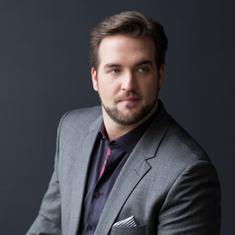
debut at the Wiener Staatsoper as Turiddu in Mascagni’s Cavalleria rusticana, followed by his first collaboration with the Shanghai Symphony Orchestra and Maestro Long Yu to record Mahler’s Das Lied von der Erde for a Deutsche Grammophon release. This spring he makes his debuts with both Opera Philadelphia in special concert performances of Tosca and Michigan Opera Theatre in special concert performances of Cavalleria rusticana, and this summer he returns to the Bayersiche Staatsoper in Turandot.
In addition to his stage career, Jagde advocates and volunteers for several arts education organizations and schools in New York City and across the U.S. He is a graduate of San Francisco Opera’s Adler and Merola Programs. Jagde was born and raised in New York, where he currently resides.
Praised by The Washington Post for her “gorgeous, warm voice that you want to keep listening to”, American mezzo-soprano
Catherine Martin continues to make an impact in repertoire ranging from Verdi and Wagner to Strauss and Bellini. Her 2019-2020 season included Wellgunde in Götterdämmerung with the National Taichung Theatre in Taiwan, the cover of Sister Helen Prejean in Dead Man Walking and singing the 2nd Norn in Götterdämmerung and Waltraute in Die Walküre at Lyric Opera of Chicago and covering Marguerite in Berlioz’s Le damnation de Faust with The Metropolitan Opera. Engagements for this season include Waltraute in Twilight: Gods with Michigan Opera Theatre and Lyric Opera of Chicago and Dame
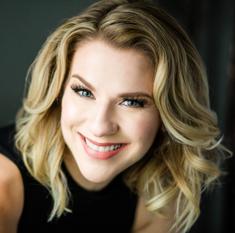
Quickly in Falstaff with Berkshire Opera Festival as well as postponed or cancelled productions of Lohengrin with The Dallas Opera and Dead Man Walking with The Metropolitan Opera.
Highlights from recent seasons include Sister Helen Prejean in Dead Man Walking with Minnesota Opera and Dayton Opera as well as covering Sister Helen at Washington National Opera; performances in various roles from Wagner’s Ring Cycle with Lyric Opera of Chicago, Houston Grand Opera, Washington National Opera, Boston Symphony Orchestra, Dallas Symphony, and National Taichung Theatre; Amneris in Aïda with Houston Grand Opera, Opera Colorado, and Opera Santa Barbara; Adalgisa in Norma with Florida Grand Opera; Der Komponist in Ariadne auf Naxos at The Glimmerglass Festival; and Maddalena in Rigoletto with New Orleans Opera and Opera Santa Barbara. In addition, she has appeared in multiple contemporary operas including Mary in the world premiere of The Lion, the Unicorn, and Me with Washington National Opera; Genevieve in The Long Christmas Dinner with American Symphony Orchestra; Tamara in Enemies, A Love Story with Kentucky Opera; Eva Crowley in An American Dream with Lyric Opera of Chicago; and Sara Miller in Approaching Ali with Washington National Opera.
received her Masters of Music from the Manhattan School of Music and graduated from The Juilliard School before spending two years in the Domingo-Thornton Young Artist Program at Los Angeles Opera. In 2008, she became a principal artist in the ensemble at Deutsche Oper Berlin where she remained until 2019; singing many roles including Mama Lucia Cavalleria Rusticana, Third Lady Die Zauberflöte, Mary Der fliegende Holländer, Madelon Andrea Chenier, Ulrika Un Ballo in Maschera. Miller appeared in several roles in Der Ring des Nibelungen, most notably Erda and First Norn, roles she also sang at San Francisco Opera, Teatro Real Madrid, Lyric Opera of Chicago, Semperoper Dresden and The Metropolitan Opera of New York. She sang concert performances of the work at Tanglewood Festival, the Edinburgh International Festival and in Amsterdam at the Concertgebouw. Miller has appeared in many concerts worldwide, and has shared the concert stage with Christian Thielemann, Simon Rattle, Andrew Davis, Alexander Vedernikov, Donald Runnicles, Fabio Luisi and Riccardo Muti among others. Returning to the US in 2020, the artist joined Atlanta Symphony Orchestra for their Gala concert last fall, and she’s currently appearing as Mrs Peacham The Threepenny Opera at The Atlanta Opera. She returns to the Metropolitan Opera next season for the role of Big Stone in Matthew Aucoin’s Eurydice.
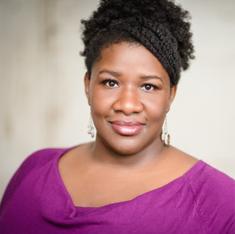
Lauded by Opera News for his “inky bass-baritone and clear projection seemed ideally suited to the role, capturing this isolated man’s passion with telling grief,” in the 2020/21 season Alfred Walker joins Michigan Opera Theatre for Alfio in Cavalleria Rusticana. Among his upcoming engagements, he will return to the Metropolitan Opera for further performances of Crown in Porgy and Bess, to Lyric Opera of Chicago for Vater in Hansel und Gretel and join San Francisco Opera as Scarpia in Tosca. Last season, he sang Crown in Porgy and Bess (Metropolitan Opera), Vater in Hansel und Gretel (San Francisco Opera), Oroveso in Norma (Boston Lyric Opera), and Porgy in Porgy and Bess (Washington National Opera). Recent performances include: Titurel in Parisfal, Parsi Rustomji in Satyagraha and the Speaker in The Magic Flute (Metropolitan Opera); the Ruler in Das Wunder der Heliane (Bard Summerscape); Orest in Elektra (San Francisco Opera, Teatro alla Scala, Deutsche Opera Berlin, Seattle Opera, San Sebastián Festival); Amonasro in Aida and Porgy in Porgy and Bess (Seattle Opera); Méphistophélès in Faust (Teatro Municipal de Santiago, Portland Opera); Der fliegende Holländer, Amfortas in Parsifal, and Amonasro in Aida (Theater Basel); Wotan in Das Rheingold (North Carolina Opera); Bluebeard in Bluebeard’s Castle (New Japan Philharmonic); Pizarro in Fidelio (Caramoor Music Festival); Josh Gibson in The Player King (Pittsburgh Opera); Four Villains in Les contes d’Hoffmann (Den Norske Opera, Komische Oper Berlin); and Der fliegende Holländer (Geneva Wagner Festival, Oper Köln, Seattle Opera, Théâtre de Caen, Grand Théâtre de Luxembourg); Kurwenal in Tristan und Isolde (Angers Nantes Opera, Opéra de Dijon).

Suzanne Mallare Acton has received wide acclaim for her work as Chorus Master. For Michigan Opera Theatre, she has prepared over 150 productions in eight languages and has conducted 35 operas. She is also the founder and director of the Michigan Opera Theatre Children’s Chorus. Guest conducting credits include productions with Dayton Opera, Augusta Opera, Artpark, Saginaw Symphony, Dearborn Symphony, Birmingham-Bloomfield Symphony, and the Lexington Bach Festival. She is also the conductor of the Detroit holiday favorite, Too Hot to Handel, a work she also premiered in Chicago at the Auditorium Theatre and in Memphis at the Orpheum Theatre. In addition to her work at MOT, Acton has until recently been the Artistic Director of Rackham Choir.
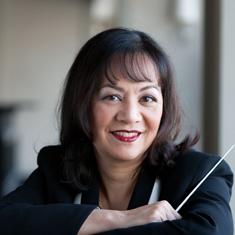
SOPRANO
Brandy Adams
Carol Ambrogio Wood
Alaina Brown
Lucia Helgren
Audrey Kline
Edwina Luokkala-Burckhardt
Sandra Periord
Maitri White
Heidi Bowen Zook
Gregory Ashe
Diego Roberts Buceta
Dorian Dillard
Ryan Hurley
Richard Jackson, Jr.
Camron Johnson
Adrian Leskiw
MEZZO SOPRANO
Andrea Apel
Hillary LaBonte
Kristina Riegle
Diane Schoff
Tiffanie Waldron
Antona Yost
Zachary Coates
Benton DeGroot
Kurt Frank
Brandon C.S. Hood
Matthew Konopacki
David Moan
Paolo Pacheco
Kevin Starnes
The American Guild of Musical Artists is the official union of the Michigan Opera Theatre Chorus
VIOLIN I
Eliot Heaton* - Concertmaster
Laura Roelofs*
Jenny Wan*
Andrew Wu*
Molly Hughes*
Velda Kelly*
Emily Barkakati*
Beth Kirton*
Ran Cheng
VIOLIN II
Henrik Karapetyan* - Acting Principal
Dan Stachyra*
Bryan Johnston*
Anna Bittar-Weller*
David Ormai
Yuri Popowycz
VIOLA
John Madison* - Principal
Scott Stefanko*
Jacqueline Hanson*
James Greer
CELLO
Andrea Yun* - Acting Principal
Jinhyun Kim*
Sarah Cleveland
Damon Coleman
BASS
Derek Weller* - Principal
Clark Suttle*
Jean Posekany
*Michigan Opera Theatre Core Orchestra
FLUTE
Dennis Carter - Acting Principal
Laura Larson*
OBOE
Nermis Mieses* - Principal
CLARINET
Chad Burrow - Acting Principal
J. William King*
BASSOON
Gregory Quick* - Acting Principal
HORN
Andrew Pelletier* - Principal
Carrie Banfield-Taplin*
CORNET
David Ammer* - Principal
Gordon Simmons*
TROMBONE
Brittany Lasch* - Principal
Bryan Pokorney
TIMPANI
Terence Farmer - Acting Principal
PERCUSSION
Dorsey* - Principal
David Taylor
HARP
Maurice Draughn - Acting Principal
ORGAN
Robert Conway
Detroit Federation of Musicians
Local #5 American Federation of Musicians
See live Italian to English translations of tonight’s performance on your smartphone or web-enabled device, powered by LiveNote!
Simply scan the QR code with your phone’s camera and follow the prompt to the LiveNote website.

LiveNote offers translations and additional content of tonight’s performance.
La scena rappresenta una piazza in un paese della Sicilia.—Nel fondo, a destra, Chiesa con porta praticabile. — A sinistra l’osteria e la casa di Mamma Lucia.
È il giorno di Pasqua.
TURIDDU (dentro alla scena)
O Lola c’hai di latti la cammisa, si bianca e russa comu la cirasa, quannu t’affacci fai la vucca a risa, biatu pì lu primu cu ti vasa!
The scene represents a square in a village in Sicily. At the back, on the right, a church with a moveable door. On the left, an inn and the house of Mother Lucia. It is Easter.
TURIDDU (off-stage)
O Lola, your lips are as red as cherries! A smile comes to my lips whenever you appear. Lucky is he who first kisses you.
Ntra la puorta tua lu sangu è spasu, A warning in blood is written over your door. ma nun me mpuorta si ce muoru accisu.
E si ce muoru e vaju ‘n paradisu, si nun ce truovo a ttia, mancu ce trasu!
Coro
DONNE (di dentro)
Gli aranci olezzano sui verdi margini, cantan le allodole tra i mirti in fior; tempo è si mormori da ognuno il tenero canto che i palpiti raddoppia al cor.
Yet I would risk everything to have you. And if I died for you and went to heaven, I wouldn’t stay unless I found you there too.
Chorus
WOMEN (within)
The sweet scent of orange blossoms fill the air and the larks sing from the myrtles. Now let us sing tender songs that move our hearts.
UOMINI (di dentro)
In mezzo al campo tra le spiche d’oro giunge il rumore delle vostre spole, noi stanchi riposando dal lavoro a voi pensiamo. O belle occhi-di-sole, a voi corriamo, come vola l’augello al suo richiamo!
(Il coro entra in iscena)
DONNE
Cessin le rustiche opre: la Virgine serena allietasi del Salvator!
SCENA II
Santuzza e Lucia
SANTUZZA (entrando)
Dite, mamma Lucia…
LUCIA (sorpresa)
Sei tu? …che vuoi?
SANTUZZA
Turiddu ov’è?
LUCIA
Fin qui vieni a cercare il figlio mio?
SANTUZZA
Voglio saper soltanto, perdonatemi voi, dove trovarlo.
LUCIA
Non lo so, non lo so, non voglio brighe!
SANTUZZA
Mamma Lucia, vi supplico piangendo, fate come il Signore a Maddelena…
Ditemi per pietà, dov’è Turiddu?
LUCIA È andato per il vino a Francofonte.
SANTUZZA
No!... l’han visto in paese ad alta notte…
MEN (within)
From the golden fields of grain, we hear you working at your looms.
The vision of your smiling eyes lightens our labor.
Sweet rays of sun, we rush to you like birds fly to their mates.
(The chorus comes on the stage)
WOMEN
Now cease your rustic work. The Virgin rejoices, for our Savior is risen today!
SCENE 2
Santuzza and Lucia
SANTUZZA (entering)
Tell me Mamma Lucia…
LUCIA (surprised)
Santuzza! What is it?
SANTUZZA
Where is Turridu?
LUCIA
You come to me looking for my son?
SANTUZZA
I only want to know where I can find him.
LUCIA I don’t know. I don’t want any trouble!
SANTUZZA
I am in tears …I beg you… Please treat me kindly, like our Lord with Mary Magdalene.
Tell me, for mercy’s sake, where is Turiddu?
LUCIA
He’s gone to Francoforte for the wine.
SANTUZZA
No! He was seen in the village last night.
LUCIA
Che dici?... se non è tornato a casa!
LUCIA What are you saying? He didn’t come home!
(avviandosi all’uscio di casa)
Entra…
SANTUZZA
Non posso entrare in casa vostra....
(Going toward the door of her house) Come inside.
SANTUZZA
I cannot enter your house!
Sono scomunicata! I am a sinner, I have been excommunicated!
LUCIA
E che ne sai del mio figliuolo?
SANTUZZA
Quale spina ho in core!
SCENA III
Alfio, Coro e dette
ALFIO
Il cavallo scalpita, i sonagli squillano, schiocca la frusta.—Ehi là!—
Soffii il vento gelido, cada l’acqua e nevichi, a me che cosa fa?
CORO
O che bel mestiere fare il carrettiere andar di qua e di là!
ALFIO
M’aspetta a casa Lola che m’ama e mi consola, ch’è tutta fedeltà.
Il cavallo scalpiti, i sonagli squillino,
è Pasqua, ed io son qua!
è Pasqua, ed io son qua!
LUCIA
Beato voi, compar Alfio, che siete sempre allegro così!
ALFIO
Mamma Lucia, n’avete ancora di quel vecchio vino?
LUCIA
Non so; Turiddu è andato a provvederne
LUCIA
What do you know about my son?
SANTUZZA
Oh, my heart aches!
SCENE 3
Alfio, Lucia, Santuzza and Chorus
ALFIO
The horse hooves thunder, the bells jingle and the whip cracks!
Let the cold winds blow! Rain or snow; nothing bothers me!
CHORUS
A carter’s life is mighty fine, traveling far and wide!
ALFIO
And at home, my Lola waits. Loving and comforting, faithful to me alone.
The horse’s hooves thunder and the harness bells jingle.
It’s Easter, and I’m home!
It’s Easter, and I’m home!
LUCIA
You’re a lucky man, Alfio. Always so happy.
ALFIO
Mamma Lucia, do you have any of that good wine left?
LUCIA
No, but Turiddu went off to get some.
ALFIO
Se è sempre qui!—L’ho visto stamattina vicino a casa mia!
LUCIA (sorpresa) Come?
SANTUZZA (rapidamente)
Tacete!
(dalla Chiesa odesi intonare l’alleluja)
ALFIO
Io me ne vado, ite voi altre in chiesa. (esce)
COROR INTERNO (dalla Chiesa)
Regina coeli, laetare—Alleluja! Quia, quem meruisti portare—Alleluja!
Resurrexit sicut dixit—Alleluja!
CORO ESTERNO (sulla piazza)
Inneggiamo, il Signor non è morto. Ei fulgente ha dischiuso l’avel…
inneggiamo al Signore risorto oggi asceso alla gloria del Ciel!
Inneggiamo, il Signor non è morto. Ineggiamo al Signore risorto…
ALFIO
But I saw him this morning near my house!
LUCIA (surprised) Really?
SANTUZZA (quickly)
Be quiet!
(Those in the church are heard singing Alleluia)
I’d better leave and prepare for the service. (He goes out)
CHORUS (within the church)
Queen of Heaven, rejoice! Alleluia! For He, whom you have given… Alleluia!
…has risen as He said. Alleluia!
CHORUS (in the square)
Let us rejoice, for our Savior arose from death, Let us rejoice, for He has opened the tomb… Let us rejoice. Our Lord has risen and ascended to Heaven.
Let us rejoice, for our Savior arose from death. Let us rejoice, for He has risen…
Oggi asceso alla gloria del ciel! He ascends today to the glory of Heaven.
Il cavallo scalpiti, i sonagli squillino, Inneggiamo, il Signor non è morto.
Ineggiamo al Signore risorto…
Oggi asceso alla gloria del ciel!
(il Coro esce lentamente)
SCENA IV
Lucia e Santuzza
LUCIA
Perchè m’hai fatto segno di tacere?
Lola waits; loving and true. Let us rejoice,
for our Savior arose from death and has ascended this day to the glory of Heaven.
(The chorus goes out slowly)
SCENE 4
Lucia and Santuzza
LUCIA
Why did you warn me to be quiet?
SANTUZZA
Voi lo sapete, o mamma, prima d’andar soldato Turiddu aveva a Lola eterna fè giurato. Tornò, la seppe sposa;
e con un nuovo amore volle spegner la fiamma che gli bruciava il core.
SANTUZZA
Mamma, you know that before he departed as a soldier Turiddu had sworn eternal love to Lola. He came back and found her married;
He turned to a new love to ease the burning pain in his heart.
m’amò, l’amai. He loved me, and I loved him.
Quell’invida d’ogni delizia mia, But Lola envied my happiness. del suo sposo dimentica, arse di gelosia.... Me l’ha rapito.
Priva dell’onor mio rimango: Lola e Turiddu s’amano, io piango, io piango, io piango!
LUCIA
Miseri noi, che cosa vieni a dirmi in questo santo giorno?
SANTUZZA
Io son dannata!
Andate, o mamma, ad implorare Iddio, e pregate per me.
Verrà Turiddu, vo’ supplicarlo un’altra volta ancora!
LUCIA (avviandosi alla chiesa)
Ajutatela voi, Santa Maria! (esce)
SCENA V
Santuzza e Turiddu
TURIDDU
Tu qui, Santuzza?
SANTUZZA Qui t’aspettavo.
TURIDDU
È Pasqua, in chiesa non vai?
SANTUZZA
Non vo. Debbo parlarti...
She forgot her husband; She was wild with jealousy. She stole Turiddu from me.
I have been robbed of my honor. I am disgraced. Lola and Turiddu are lovers… …and I have only tears!
LUCIA
Merciful Lord, what awful things to hear on this holy day.
SANTUZZA
I am damned!
Go, Mamma, and pray to God…and pray for me, too.
When Turiddu comes, I’ll plead with him once again.
LUCIA (going toward the church) Help her, holy Mother Mary! (She goes out)
SCENE 5
Santuzza and Turiddu
TURIDDU
You’re here, Santuzza?
SANTUZZA
I was waiting for you.
TURIDDU
It’s Easter. Aren’t you going to Mass?
SANTUZZA
I cannot go. I must speak with you.
TURIDDU
Mamma cercavo…
SANTUZZA
Debbo parlarti…
TURIDDU
Qui no! Qui no!
SANTUZZA
Dove sei stato?
TURIDDU
Che vuoi tu dire?... A Francofonte!
SANTUZZA
No, non è ver!
TURIDDU Santuzza, credimi…
SANTUZZA
No, non mentire; ti vidi volgere giù dal sentier.
E stamattina, all’alba, t’hanno scôrto presso l’uscio di Lola.
TURIDDU
Ah! m’hai spiato!
SANTUZZA No, te lo giuro! A noi l’ha raccontato Compar Alfio, il marito, poco fa.
TURIDDU
I was looking for Mamma.
SANTUZZA
I need to speak to you.
TURIDDU Not here!
SANTUZZA
Where have you been?
TURIDDU
Why does it matter? In Francofonte.
SANTUZZA
That’s not true!
TURIDDU
Santuzza, believe me.
SANTUZZA
Don’t lie. I saw you on the other road.
And at dawn you were seen leaving Lola’s house.
TURIDDU
You were spying!
SANTUZZA
No, I swear it! Alfio, her husband, was telling us just now.
TURIDDU
Così ricambi l’amor che ti porto?
TURIDDU Is this the way you repay my love? Vuoi che m’uccida?
SANTUZZA Oh! questo non lo dire…
TURIDDU
Do you want him to kill me?
SANTUZZA
Don’t say that!
TURIDDU
Then leave me alone! invan tenti sopire il giusto sdegno colla tua pietà!
Lasciami dunque,
You’ve insulted me. Don’t look for my pity now.
SANTUZZA
Tu l’ami dunque?
Assai più bella è Lola...
TURIDDU
Taci, non l’amo!
SANTUZZA
L’ami.... Oh! maledetta!
SANTUZZA
Then you do love her.
You think she’s more beautiful.
TURIDDU
Be quiet! I don’t love her!
SANTUZZA
You do love her! Oh, curse you!
Quella cattiva femmina ti tolse a me! That evil woman stole you from me!
TURIDDU
Bada, Santuzza, schiavo non sono di questa vana tua gelosia!
SANTUZZA
Battimi, insultami, t’amo e perdono, ma è troppo forte l’angoscia mia.
TURIDDU
Bada, Santuzza, schiavo non sono di questa vana tua gelosia!
SANTUZZA
Battimi, insultami, t’amo e perdono, ma è troppo forte l’angoscia mia.
SCENA VI
Lola e detti
LOLA (dentro alla scena) Fior di giaggiolo,
gli angeli belli stanno a mille in cielo,
ma bello come lui ce n’è uno solo.
Fior di giaggiolo! (entrando)
Oh! Turiddu.... È passato Alfio?
TURIDDU
Son giunto ora in piazza. Non so... (impacciato)
TURIDDU
Enough, Santuzza! I’m not a slave to your jealousy.
SANTUZZA
Hurt me, insult me, I’ll still love and forgive you. But this anguish is too much to bear.
TURIDDU
Enough, Santuzza! I’m not a slave to your jealousy.
SANTUZZA
Hurt me, insult me, I’ll still love and forgive you. But this anguish is too much to bear.
SCENE 6
Lola and the others
LOLA (off-stage)
My lovely little flower!
There are a thousand beautiful angels in heaven
…but none can compare to you.
My lovely little flower! (entering)
Turiddu, has Alfio come by?
TURIDDU
I just got here. I don’t know. (embarrassed)
LOLA
Forse è rimasto del maniscalco, ma non può tardare.
LOLA
Maybe he’s at the blacksmith’s. But he won’t be long.
E ... voi ... sentite le funzioni in piazza… You’re hearing Mass from the piazza?
TURIDDU
Santuzza mi narrava…
SANTUZZA (tetra)
TURIDDU
Santuzza was saying…
SANTUZZA (sadly)
I was saying that it’s Easter… e il Signor vede ogni cosa! …and that God sees everything!
Gli dicevo che oggi è Pasqua…
LOLA
Non venite alla messa?
SANTUZZA (tetra)
Io no, ci deve andar chi sa di non aver peccato.
LOLA
Io ringrazio il Signore e bacio in terra!
SANTUZZA (ironica)
Oh! fate bene, Lola!
TURIDDU
Andiamo! andiamo! Qui non abbiam che fare.
LOLA (ironica) Oh! rimanete!
SANTUZZA
Si, resta, resta, ho da parlarti ancora!
LOLA
E v’assista il Signore; io me ne vado! (entra in chiesa)
SCENA VII
Santuzza e Turiddu
TURIDDU (irato)
Ah! lo vedi, chè hai tu detto...?
SANTUZZA
L’hai voluto, e ben ti sta!
LOLA
You’re not going to Mass?
SANTUZZA (sadly)
No, only those who are without sin should go.
LOLA
Then I thank the Lord that I’m among them!
SANTUZZA (ironically) You do that, Lola!
TURIDDU
Come, we have nothing more to do here.
LOLA (ironically) Oh, you can stay!
SANTUZZA
Yes, stay here. I still have something to say.
LOLA
May the good Lord watch over you. With the help of the Savior, I’ll go in. (She goes into the Church)
SCENE 7
Santuzza and Turiddu
TURIDDU (irate)
Why did you speak to her that way?
SANTUZZA
It serves you right.
TURIDDU (le s’avventa)
Ah! perdio!
SANTUZZA
Squarciami il petto…
TURIDDU (s’avvia) No!
SANTUZZA (trattenendolo)
Turiddu, ascolta!
No, no, Turiddu, rimani ancora, abbandonarmi—dunque tu vuoi?
TURIDDU
Perchè seguirmi— perchè spiarmi, sul limitare—fin della chiesa?
SANTUZZA
No, no, Turiddu, rimani ancora, abbandonarmi—dunque tu vuoi?
TURIDDU (advancing) So help me, I’ll…
SANTUZZA
Tear out my heart!
TURIDDU (drawing back) No! Go!
SANTUZZA (beseechingly)
Turiddu, listen!
No, Turiddu, stay with me. How can you abandon me like this?
TURIDDU
Why must you follow me? Why are you spying, following me to the very doors of the church?
SANTUZZA
No, Turiddu, stay with me. How can you abandon me like this?
Your Santuzza is begging you in tears. Come cacciarla cosi tu puoi, la tua Santuzza?
La tua Santuzza piange e t’implora.
TURIDDU
Va ti ripeto, va, non tediarmi, pentirsi e vano dopo l’offesa.
SANTUZZA
Ah! Dunque tu vuoi abbandonarmi?
TURIDDU
Ah! Va, ti ripeto…
SANTUZZA (minacciosa) Bada!
TURIDDU
Dell’ira tua non mi curo! (la getta a terra e fugge in chiesa)
SANTUZZA (nel colmo dell’ira) A te la mala Pasqua, spergiuro!
How can you cast me aside like this?
TURIDDU
Go! Don’t provoke me. You’ve insulted me.
SANTUZZA How can you abandon me like this?
TURIDDU
Go! Leave me alone
SANTUZZA (threatening)
I’m warning you!
TURIDDU
I’ve had enough of this madness! (He throws her on the ground and rushes into the church)
SANTUZZA (in greatest fury)
An Easter curse on you, you liar!
SCENA VIII
Santuzza e Alfio
SANTUZZA
Oh! il Signore vi manda, Compar Alfio!
ALFIO
A che punto è la messa?
SANTUZZA
SCENE 8
Santuzza and Alfio
SANTUZZA
The Lord himself sent you, Alfio.
ALFIO
Has Mass already begun?
SANTUZZA
It’s almost over. And I must tell you Ma per voi, Lola è andata con Turiddu!
È tardi omai,
ALFIO
Che avete detto?
SANTUZZA
Che mentre correte all’acqua e al vento a guadagnarvi il pane, Lola v’adorna il tetto in malo modo!
ALFIO Ah! nel nome di Dio, Santa, che dite?
SANTUZZA
Il ver. Turiddu mi tolso l’onore, e vostra moglie lui rapiva a me!
Turiddu mi tolso l’onore!
ALFIO
Se voi mentite, vo’ schiantarvi il core!
SANTUZZA
Uso a mentire il labbro mio non è!
Per la vergogna mia, pel mio dolore la trista verità vi dissi, ahimè!
… Lola’s gone with Turiddu!
ALFIO
What did you say?
SANTUZZA
While you’ve been out working, riding through wind and rain, trying to make a living… Lola has brought shame upon you.
ALFIO
In God’s name, what are you saying?
SANTUZZA
The truth. Turiddu dishonored me. And then your wife stole him from me.
Turiddu has dishonored me!
ALFIO
If you’re lying, I’ll cut out your heart!
SANTUZZA
I am not a liar!
To my shame and sorrow, I’ve told you the sad truth.
Turiddu took my honor… e vostra moglie lui rapiva a me!
Turiddu mi tolso l’onore…
and your wife stole him from me.
ALFIO
Comare Santa, allor grato vi sono
SANTUZZA
Infame io son che vi parlai così!
ALFIO Santuzza, I’m grateful that you told me.
SANTUZZA
It was wrong of me to tell you.
ALFIO
Infami loro; ad essi non perdono; vendetta avrò pria che tramonti il dì. Io sangue voglio, all’ira m’abbandono, in odio tutto l’amor finì…
SANTUZZA
Infame io son che vi parlai così!
ALFIO
Infami loro; ad essi non perdono; vendetta avrò pria che tramonti il dì.
SCENA IX
Tutti escono di chiesa, Lucia traversa la scene ed entra in casa. Lola, Turiddu e Coro
UOMINI
A casa, a casa, amici, ove ci aspettano le nostre donne, andiam…
Or che letizia rasserena gli animi senza indugio corriam.
A casa, a casa, amiche, ove ci aspettano I nostri sposi, andiam…
Or che le letizia rasserena gli animi senza indugio corriam.
(il Coro si avvia)
TURIDDU
Comare Lola, ve ne andate via senza nemmeno salutare?
LOLA
Vado a casa e non ho visto compar Alfio!
TURIDDU
Non ci pensate, verrà in piazza. (al Coro)
Intanto amici, qua!
beviamone un bicchiere!
(tutti si avvicinano alla tavola dell’osteria e prendono i bicchieri)
ALFIO
They were wrong! They don’t deserve forgiveness. I’ll have revenge before the day is out! Blood will flow!
All my love has turned to hatred.
SANTUZZA
It was wrong of me to tell you.
ALFIO
They don’t deserve forgiveness. I’ll have revenge by sundown!
SCENE 9
All come out of church, Lucia crosses the scene and enters her house. Lola, Turiddu and Chorus
CHORUS OF MEN
Let’s go home, friends. Our wives are waiting for us.
Let’s enjoy the holiday and the rest it offers to the spirit.
Let’s go home now, good friends. Our men are waiting. Let’s go!
Let us go with the joy of this day upon us. (The chorus starts to leave)
TURIDDU
Lola, you’re leaving without saying goodbye?
LOLA I’m going home. I haven’t seen Alfio.
TURIDDU
Don’t worry. He’ll be here soon. (To the chorus)
Until then, friends, come here.
Let’s drink!
(They all come to the table and take drinking cups)
TURIDDU
Viva il vino spumeggiante nel bicchiere scintillante
come il riso dell’amante mite infonde il giubilo!
Viva il vino ch’ è sincero che ci allieta ogni pensiero,
e che annega l’umor nero nell’ebbrezza tenera!
TURIDDU (a Lola)
Ai vostri amori!
LOLA (a Turiddu)
Alla fortuna vostra! (beve)
TURIDDU
Beviam!
CORO
Beviam! Rinnovisi la giostra!
SCENA X
Alfio e detti
ALFIO A voi tutti salute.
TURIDDU
Benvenuto! con noi dovete bere! (empie un bicchiere)
ALFIO (respingendolo)
Grazie, ma il vostro vino io non l’accetto… diverrebbe veleno entro il mio petto!
TURIDDU (getta il vino)
A piacer vostro!
LOLA
Ahimè! che mai sarà?
ALCUNE DONNE (a Lola) Comare Lola, andiamo via di qua… (tutte le donne escono conducendo Lola)
TURIDDU
Long live wine, sparkling in the glass! Wine spreads joy like a lover’s smile.
A toast to wine that sparkles and shimmers… spreading joy, like a lover’s smile.
Long live wine that truly eases every care, and drives away all our worries.
Wine eases every burden. It banishes all our cares!
TURIDDU (to Lola)
To your loves!
LOLA (to Turiddu)
To your good fortune! (drinks)
TURIDDU
Let’s have another!
CHORUS
Let’s drink! Let’s have another round!
SCENE 10
Alfio and the others
ALFIO (entering)
To your health!
TURIDDU
Welcome, Alfio! Have a drink with us! (he fills a glass)
ALFIO (pushing away his arm and the glass) I can’t accept the wine you offer… It would turn to poison in my stomach.
TURIDDU (throwing away the wine)
As you like.
LOLA
What will happen now?
SOME WOMEN (to Lola) Lola, come away from here. (All the women go out, taking Lola)
TURIDDU
Avete altro da dirmi?
ALFIO Io? Nulla!
TURIDDU
Allora sono agli ordini vostri
ALFIO Or ora!
TURIDDU Or ora!
(Alfio e Turiddu si abbracciano. Turiddu morde l’orecchio destro di Alfio.)
ALFIO
Compar Turiddu, avete morso a buono… c’intenderemo bene, a quel che pare!
TURIDDU
Compar Alfio, lo so che il torto è mio…
...e ve lo giuro nel nome di Dio che al par d’un cane mi farei sgozzar;
ma ... s’io non vivo,
resta abbandonata … povera Santa!... lei che mi s’ è data …
Povera Santa!
TURIDDU
Have you anything else to say?
ALFIO Nothing.
TURIDDU
Then whenever you’re ready.
ALFIO Now?
TURIDDU Now!
(Alfio and Turiddu embrace. Turiddu bites Alfio’s right ear.)
ALFIO
Turiddu, I accept your challenge. I think you know what I’m talking about.
TURIDDU
My neighbor Alfio, I know I’ve wronged you…
…and in the name of God, I know I deserve to die. But if I should die…
...poor Santuzza will be abandoned!
She, who gave herself to me, would be abandoned.
Poor Santuzza!
Vi saprò in core il ferro mio piantar! So I’ll plunge my knife into your heart!
ALFIO (freddamente)
Compare, fate come più vi piace;
io v’aspetto qui fuori, dietro l’orto. (esce)
SCENA XI
Lucia e detti, meno Alfio
TURIDDU
ALFIO (coldly)
My friend, do as you like.
I’ll be waiting for you by the orchard. (He goes out)
SCENE 11
Lucia and the others, except Alfio
TURIDDU
Mamma, quel vino è generoso…
And most certainly…I’ve drunk too much of it.
Mamma! That wine has gone to my head! e certo oggi… troppi bicchier ne ho tracannati …
vado fuori all’aperto.... I need some fresh air…
Ma prima voglio che mi benedite come quel giorno che partii soldato …
e poi ... mamma ... sentite …
s’io ... non tornassi …
voi dovrete fare da madre a Santa
But first, I want you to give me your blessing just as you did when I departed as a soldier.
And then, Mamma, listen.
If I don’t return…
…you must be like a mother to Santuzza.
ch’io le avea giurato di condurla all’altare.— I gave her my promise that we would marry.
voi dovrete fare da madre a Santa… You must be a mother to Santuzza…
s’io non tornassi…
LUCIA
Perchè parli così, figliuolo mio?
TURIDDU
Oh! nulla! È il vino che mi ha suggerito!
…if I don’t come back.
LUCIA
Why are you talking like this?
TURIDDU
No reason! It must be the wine.
Per me pregate Iddio!— Pray to God for me!
Un bacio, mamma …un altro bacio … One kiss, Mamma! One more kiss…
S’io non tornassi, voi dovrete fare da madre a Santa…
(l’abbraccia ed esce precipitosamente)
SCENA XII
Lucia, Santuzza e detti
LUCIA (disperata correndo in fondo)
Oh Turiddu?! che vuoi dire?
(entra Santuzza)
Santuzza!
SANTUZZA
Oh! madre mia!
(si sente un mormorio lontano)
DONNE
Hanno ammazzato compare Turiddu!...
(Alcune donne entrano, ed una di esse grida disperatamente. Tutti si precipitano sulla scena. SANTUZZA cade priva di sensi. LUCIA sviene, ed è sorretta dalle donne del Coro.)
And if I don’t return, be a mother to Santuzza!
(He embraces her and goes out quickly)
SCENE 12
Lucia, Santuzza and the others
LUCIA (desperate, rushing toward the back of the stage) Turiddu! What did you mean?
(Enter Santuzza) Santuzza!
SANTUZZA
Oh, my mother!
(A confused murmur is heard in the distance)
WOMEN
They’ve killed Turiddu!
(Some of the women enter, and one of them repeats the cry desperately. All come on the stage. SANTUZZA falls senseless. LUCIA swoons, and is surrounded by all the women)
In a season filled with portrayals of modern humanism, of life in its realistic, troubled, and groundbreaking forms, it is fitting that Michigan Opera Theatre’s season begins with a concert presentation of Cavalleria rusticana (1890). A consciously Italian realist work, Pietro Mascagni’s first opera launched the operatic verismo movement. A decade after its premiere, a Roman journalist reflected on the impact of this sensationally successful opera in an article entitled “The Direction and Promises of Italian Art”: audiences “had to realize that it was the natural consequence of a new attitude of spirits… It seemed healthy to return to the pure and raw and naked—very naked!—reality. The heroic era was declining; Verdian patriotism had used and abused scepters and swords and tyrants; romanticism had tired us with eternal languors.”1 Mascagni’s one-act work featured neither nobles nor pompous heroes of generations prior. Cavalleria’s peasant characters and working-class Sicilian environment articulated a new aesthetic perspective for audiences. Idealism became trite. The echoes of the Italian Risorgimento were certainly outdated by the turn of the twentieth century. With its layered soundscapes, streamlined drama, declamatory vocal lines, and use of local dialect, Mascagni’s verismo opera eschewed the Romanticism of a previous era.
1 L’indirizzo e le promesse dell’arte italiana,” Rivista d’Italia, 1902, 3, no. 11, (November 1902), 860.
The plot of Cavalleria rusticana is derived from Giovanni Verga’s short story and play of the same name. Verga, regarded among the forefathers of literary verismo in the 1870s, published stories to northern Italian audiences about the ordinary lives of impoverished citizens in his hometown of Catania, a port city in Sicily. Verga published Cavalleria in Vita dei campi (1880), a collection of novellas and short stories. Also included in this volume is a letter from Verga to fellow writer Salvatore Farina. In it, he lays the groundwork for Italian verismo. “In its living contours,” Verga describes, stories “will preserve no imprint of the mind that brought it to life, no shadow of the imagination that first conceived it.”2 Works of verismo should appear as natural, or as true to reality, as possible. In 1884, Verga adapted the short story as a play. The play was such a hit that Mascagni and his librettist, Giovanni Targioni-Tozzetti, chose Verga’s staged adaptation as the foundation for his entry for the 1888 Sonzogno competition for young opera composers. They hoped that the play’s popularity would appeal to the Milanese judges and northern Italian audiences. It evidently did.
Taken in full, the fast-paced, layered scenes of Cavalleria rusticana create a kaleidoscopic soundscape, capturing the many shades of human complexity that underlie even the simplest bucolic setting. In creating a multifaceted, operatic version of verismo, Mascagni also reinforces the troubling and political undertones of this artistic movement as well. The opera’s hymns, antiphons, and songs of celebration provide an idealistic sonic backdrop that is constantly juxtaposed with the dark, richly vocal drama of the local Sicilian characters, offering a pessimistic, regional view of Italian realism. This mixture of expressive registers complements contemporary images of southern Italy (the Mezzogiorno) that were often conjured up by northern Italian journalists, photographers, and intellectuals in the late nineteenth century. Following the Italian Unification in the 1860s, the nation’s south was imagined as a region that was uncivilized, resistant to national uniformity
and modernity. Marginalized by the north, southern Italy was considered idyllically agrarian, yet socially depraved. Cavalleria rusticana’s explorations of character deviance—of passionate adultery, violence, and alcoholism—support these visions. Mascagni relies on local color, or tinta, to convey his characters’ deviancy, suggesting an intrinsic relationship between a distinctly southern Italian identity and its association with human vice. The textual elements of Cavalleria augment this verismo-specific vision of Italianness as well. Mascagni mixes local Sicilian dialect, Latin, and modern standard Italian throughout the opera. These linguistic choices portray the characters’ “southernness” not only as distinctive, but literally deviating from a standard language that was actively being formed in Italy at this time.
Mascagni insisted on his faithfulness to Verga’s original text by featuring the story’s love triangle, quick-paced dialogue, Sicilian setting and dialect, and the characters’ coarseness. Following a brief orchestral introduction, Turridu sings a pastoral siciliana about his adulterous lover, Lola, before dawn breaks. Soft harps resembling a strummed guitar accompany his sensual, offstage song, the text’s dialect derived from the original story. The day rises to a bustling square on Easter morning. A chorus of villagers emerges to welcome the day, singing paeans to spring and a hymn to the Virgin Mary as bells toll. A shadowy leitmotif on low strings sounds at the opening of the following scene, when Santuzza, Turridu’s naïve lover, visits Lucia, Turridu’s mother.
The theme, which reoccurs many times throughout the opera, reveals that the pastoral quality of the scene is merely a façade. Darkness lies beneath the community’s surface. Suspecting Turridu has been unfaithful to her, Santuzza asks Lucia where he has gone. The orchestra shifts energetically to accompany the bold entrance of Alfio, Lola’s husband. Tensions rise between Alfio, Turridu, and Lola, but an offstage iteration of the Regina coeli interrupts their secular affairs. In the following Romanza, Santuzza returns to Lucia to disclose all that has ensued. With
alternations of gentle lyricism and dramatic exclamation, Santuzza evokes pity in Turridu’s mother. A three-part duet ensues between Santuzza and Turridu, the leitmotif weaving through their tense exchanges. Santuzza reveals that she knows of his affair just as Lola’s stornello interrupts from a distance. Her street song, “Fior di gaggiolo,” initiates an uncomfortable exchange between the three. Turned off by Santuzza’s cloying jealousy, Turridu brutally rejects her. The spurned lover finds Alfio, the scene ending with her impassioned cries of shame and his thirst for blood. The following Intermezzo recalls the Regina coeli, indicating the passing of Easter Mass. After the service, the chorus disperses in happy song while Turridu heads to the tavern, launching into the brindisi, “Viva il vino spumeggiante.” The chorus joins in drunken merriment until Alfio appears. Refusing to imbibe, Alfio dampens the mood, and the crowd disperses, sensing danger. The two agree to a fight to the death, initiated in traditional Sicilian fashion by an embrace and bite to the ear. A brief reminiscence of the tragic leitmotif sounds during their final, solemn exchange. A charged duet arises as Turridu returns to Lucia to bid her farewell. Dissonant orchestration accompanies screams from a distance, pronouncing Turridu’s death. Villagers rush in as Lucia cries in agony and Santuzza faints, ending the opera.
Though the realism of Mascagni’s Cavalleria rusticana carries both innovative and historically troubling weight, we learn an important lesson about the early origins of operatic realism, one that makes our experience as listeners and spectators all the more human. The stark “realities” of Italian verismo are at once messy, moving, and subjective, informed by cultural biases and political agendas, as art often is. We can hear and hold this irony as modern audiences, listen thoughtfully and self-reflectively to such histories—to adapt Verga’s own words from long ago—“of reality as it was, or as it should have been.”3
3 Giovanni Verga, I malavoglia [The House by the Medlar Tree], translated by Raymond Rosenthal (Berkeley: University of California Press, 1964), 5.
Michigan Opera Theatre gratefully acknowledges the generous donors for their cumulative life-time giving. Their support has played a key role in the establishment of Michigan Opera Theatre since its founding in 1971 along with the building of the Detroit Opera House. Their leadership has and continues to play an integral part in the company’s viability, underwriting quality opera and dance performances, alongside award-winning community and educational programs.
$10,000,000 and above
Ford Motor Company Fund
The State of Michigan
$7,500,00 and above
General Motors
$5,000,000 and above
Fiat Chrysler Automobiles US LLC
The Kresge Foundation
William Davidson Foundation
$2,000,000 and above
Marvin, Betty and Joanne Danto Dance
Endowment & Marvin and Betty
Danto Family Foundation
Mr.† & Mrs. Douglas Allison
Mr. & Mrs. Lee Barthel
Community Foundation for Southeast Michigan
Mr. & Mrs. Herman Frankel
John S. and James L. Knight Foundation
Lear Corporation
Linda Dresner & Ed Levy, Jr.
Masco Corporation
McGregor Fund
The Skillman Foundation
R. Jamison & Karen Williams
$1,000,000 and above
Mr.† & Mrs. Robert Allesee
The Andrew W. Mellon Foundation
Mr.† & Mrs. Eugene Applebaum
AT&T
Bank of America
Mr. & Mrs. John A. Boll Sr.
Compuware Corporation
DTE Energy Foundation
Mrs. Margo Cohen Feinberg & Mr. Robert Feinberg
Mrs. Barbara Frankel & Mr. Ronald Michalak
Jean & Samuel Frankel†
Hudson-Webber Foundation
JPMorgan Chase
Danialle and Peter Karmanos
Mandell L. and Madeleine H. Berman Foundation
Matilda R. Wilson Fund
Max M. & Marjorie S. Fisher Foundation
National Endowment of the Arts
Richard Sonenklar & Gregory Haynes
United Jewish Foundation
Gary L. Wasserman & Charles Kashner
Dr. & Mrs. Sam B. Williams†
Michigan Opera Theatre gratefully acknowledges the generous corporate, foundation, government, and individual donors whose contributions to the annual fund were made between July 1, 2019 and April 10, 2021. Their generosity is vital to the company’s financial stability, which is necessary to sustain MOT’s position as a valued cultural resource.
$500,000+
The Andrew W. Mellon Foundation
John S. and James L. Knight Foundation
National Endowment for the Humanities
William Davidson Foundation
$250,000+
Community Foundation for Southeast Michigan
Max M. & Marjorie S. Fisher Foundation
The Nederlander Company
OPERA America
$100,000+
J. Addison Bartush and Marion M. Bartush Educational Fund
Ethan and Gretchen Davidson
Paul & Mary Sue Ewing
The Dolores And Paul Lavins Foundation
Ford Motor Company Fund
General Motors Corporation
Hudson-Webber Foundation
The Kresge Foundation
Lear Corporation
Marvin and Betty Danto Family Foundation
National Endowment for the Arts
$50,000 - $99,999
Burton A. Zipser And Sandra D. Zipser Foundation
Culture Source
The Fred A. & Barbara M. Erb Family Foundation
J. Ernest & Almena Gray Wilde Fund
Milner Hotels Foundation
Penske Corporation
Rocket Community Fund
The State of Michigan
The Williams Family Fund
$25,000 - $49,999
DTE Energy Foundation
UBS Financial Services, Inc.
Worthington Family Foundation
$10,000 - $24,999
DeRoy Testamentary Foundation
Detroit Pistons
Ida and Conrad H. Smith Endowment for MOT
Louis and Nellie Sieg Fund
Masco Corporation
Matilda R. Wilson Fund
MGM Grand Detroit
Michigan Humanities Council
Moore, Doeren, Mayhew
Northern Trust Bank
Oliver Dewey Marcks Foundation
Ralph L. and Winifred E. Polk Foundation
The Samuel L. Westerman Foundation
Soave Enterprises
Wege Foundation
Williams, Williams, Rattner & Plunkett P.C.
$5,000 - $9,999
AbbVie, Inc.
Bank of America Charitable Gift Fund, MA 1-225-04-02
John A. & Marlene Boll Foundation
Bowman Auto Group
Center For Financial Planning
The Children’s Foundation
Conifer Holdings
Geoinge Foundation
GlobalGiving
Green Optics LLC
Honigman LLP
The Karen & Drew Peslar Foundation
Network For Good
New England Foundation for the Arts
Sun Communities, Inc
TCF Bank
Fred and Iris Whitehouse Family Foundation
$1,000 - $4,999
Albert Kahn Associates
Arts Midwest
C&N Foundation
Deloitte
Elmira L. Rhein Family Foundation
Esther & George Jaruga
Charitable Foundation
FS Transportation, LLC
The Gilmour-Jirgens Fund
Goldman Sachs Gives
Italian American Cultural Society
James & Lynelle Holden Fund
Josephine Kleiner Foundation
Joyce Cohn Young Artist Fund
Lee & Maxine Peck Foundation
Levin Energy Partners, LLC
Liebler Family Foundation
Comet Interactive
Majorie & Maxwell Jospey Foundation
Pepsico Foundation Inc.
Rugiero Promise Foundation
Sigmund and Sophie Rohlik Foundation
Simmons & Clark Jewelers
Tuesday Musicale of Detroit
United Jewish Foundation
Wayne State Univ. Music Dept.
INDIVIDUAL SUPPORT
$100,000+
Richard and Mona Alonzo
Richard and Joanne Brodie
Milena T. Brown†
Robert C. and RoseAnn B. Comstock†
Joanne Danto and Arnold Weingarden
Linda Dresner and Ed Levy, Jr.
Maxine and Stuart Frankel
Danialle and Peter Karmanos
Paul Lavins
Laura B. Sias†
Matthew and Mona Simoncini
Gary L. Wasserman and Charles Kashner
R. Jamison and Karen Williams
$50,000 - $99,999
Mrs. Elaine Fontana
Susanne McMillan
William and Wendy Powers
Mrs. Ruth F. Rattner
Beverly Ross†
William Smith
Richard Sonenklar and Gregory Haynes
$20,000 - $49,999
Nina and Howard Abrams
James and Elizabeth Ciroli
Ms. Julia Donovan Darlow & Hon. John C. O’Meara
Kevin Dennis and Jeremy Zeltzer
Carl and Mary Ann Fontana
Mrs. Barbara Frankel and Mr. Ronald Michalak
Mr. and Mrs. Herman Frankel
Thomas and Holly Gores
Michael and Barbara Kratchman
Alphonse S. Lucarelli
Donald Manvel
Donald and Antoinette Morelock
Mr. Cyril Moscow
James and Ann Nicholson
Mr. James Petcoff
Mr. Stephen R. Polk
Sidney and Annette Rose†
Ankur Rungta and Mayssoun Bydon
Merle H. Scheibner†
Heinz and Alice Schwarz
Lorna Thomas, MD
Jesse and Yesenia Venegas
Mr. Richard D. Ventura
Tod Williams and Billie Tsien
Walter P. and Elizabeth B. Work†
$10,000 - $19,999
Mark and Gail Andreae
G. and Martha Blom
Gene P. Bowen
Wayne Brown and Brenda Kee
Ilse Calcagno
Mr. Thomas Cohn
Enrico and Kathleen Digirolamo
Dilip and Sonal Dubey
Alex Erdeljan
David and Jennifer Fischer
Dean and Aviva Friedman
Ralph and Erica Gerson
James and Nancy Grosfeld
Dr. Devon Hoover
Ms. Mary C. Mazure
Phillip and Dawn Minch
Ali Moiin and William Kupsky
Mrs. L. William Moll
Allan & Joy Nachman
Peter Oleksiak
Graham and Sally Orley
Mr. Jonathan Orser
Ralph and Winifred Polk†
Prof. Sara A. Pozzi Ph. D
Waltraud Prechter
Ms. Patricia H. Rodzik
Mrs. Carolyn L. Ross
Yuval Sharon
Mr. & Mrs. C. Thomas Toppin
Barbara Van Dusen
Mark and Josée-Anne Wakefield
$5,000 - $9,999
Mr. and Mrs. Robert Allesee
Dr. Lourdes V. Andaya
Thomas and Gretchen Anderson
Gregory and Mary Barkley
Mr. and Mrs. Lee Barthel
Richard and Susan Bingham
Paul & Lee Blizman
Mr. and Mrs. John A. Boll Sr.
Charles M. Broh†
James and Carol Carter
Hon. Avern Cohn & Ms. Lois Pincus
Françoise Colpron & James Schwyn
Anonymous
KC and Ashley Crain
Walter and Lillian Dean
Cristina DiChiera and Neal Walsh
Lisa DiChiera and John Kane
Mr. Cameron B. Duncan
Michelle and Christopher Fernandez
Glendon M. Gardner and Leslie Landau
Dr. Elizabeth Goodenough
Samuel and Toby Haberman
Mr. Robert Hage
Corey and Michelle Harris
Derek and Karen Hodgson
Mr. William Hulsker
Addison and Deborah Igleheart
Christopher and Kelle Ilitch
Eleanor & Alan Israel
Colin Knapp
Frank Kong
Ms. Mary Kramer
Mary B. Letts
Stephan and Marian Loginsky
Mr. Joe Luther
Robert and Terri Lutz
Richard and Jane Manoogian
Benjamin Meeker & Meredith Korneffel, MD
Manuel and Nora Moroun
Mr. George & Mrs. Jo Elyn Nyman
Drew and Karen Peslar
Brock and Katherine L. Plumb
John Schaefer
Mr. Laurence and Dr. Barbara Schiff
Kingsley and Lurline Sears
Mrs. Rosalind B. Sell
Mark and Lois Shaevsky
Joe Skoney and Luisa Di Lorenzo
Ida Smith
Frank and Susan Sonye
Ms. Mary Anne Stella
Anne Stricker
John and Barbara Tierney
Prof. Michael Wellman
Ned and Joan Winkelman
Margaret Winters and Geoffrey Nathan
Dr. Lucia Zamorano
$3,000 - $4,999
D.L. Anthony, Ph.D.
Dr. Harold M. Arrington
Mark and Caprice Baun
Bob and Rosemary Brasie
Dr. & Mrs. Ronald T. Burkman
David and Marilyn Camp
Dodie & Larry David
Carolyn Demps and Guy Simons
Eugene and Elaine Driker
Dr. Raina Ernstoff & Mr. Sanford Hansell
Fern Espino and Tom Short
Robert and Amy Folberg
Clifford and Zoe Furgison
Ms. Nancy B. Henk
Ms. Jill Johnson
Ann Katz
Mrs. Stephanie Germack Kerzic
Joyce Urba & David Kinsella
Edward and Barbara Klarman
John and Arlene Lewis
Mrs. Joan Marie MacKay
Mr. Loreto A. Manzo
Ms. Mary McGough
Van Momon and Pamela L. Berry
Mark and Kyle Peterson
Mr. Wade Rakes, II
George and Aphrodite Roumell
Terry Shea & Seigo Nakao
Dr. Gregory E. Stephens, D.O.
Ronald Switzer & Jim McClure
Norman Thorpe
Michele and Scott Toenniges
Joseph and Rosalie Vicari
William Waak
Dr. John Weber & Dr. Dana Zakalik
David and Kathleen Zmyslowski
$2,500 - $2,999
The Hon. Jack & Dr. Bettye Arrington Martin
Ms. Debra Bernstein-Siegel
Ms. Nicole A. Boelstler
Charles D. Bullock
Philip and Carol Campbell
Thomas and Dorothy Carson
Virginia Curatolo
David and Carol Domina
Mr. Michael Einheuser
Adrienne & Robert Z. Feldstein
Allan Gilmour and Eric Jirgens
Doreen Hermelin
Maxwell and Marjorie Jospey†
Ellen Kahn
Mark Kolins and Maria Abrahamsen
Gale Kramer and Jeffrey Chase
Donald and Juliane McCann
Eugene and Lois Miller
Harold Munson and Libby Berger
Dr. & Mrs. Peter Nickles
Robert Schirmer and Barbara Bowman
Donald and Kim Schmidt
Susan Sills-Levey and Michael Levey
Lila Silverman
Susan Sosnick
Mr. Joel D. Tauber
Thomas and Kae Terrell
Bradley Wakefield and Meghann Rutherford
Dr. Stanley H. Waldon
$1,000 - $2,499
Joshua & Judith Lowitz Adler
James and Catherine Allen
Robert and Catherine Anthony
Cecilia Benner
Eugene and Roselyn Blanchard
Ms. Barbara A Bowman
Frank and Jenny Brzenk
Mrs. Nancy Burbach
Beverly Hall Burns
Mr. Otis J. Chandler
Mr. Frank J. Coppola
James and Christine Cortez
Patricia Cosgrove
Dr. K Crawford-Fuller
Maryann Cromwell
Ms. Julia Dawson
Mr. Anthony Delsener
Ms. Mary J. Doerr
Theodore Fellenbaum and Michael Swain
Mr. Michael Fisher
Mr. John Fleming
Burke & Carol Fossee
Lynn Gandhi
Lawrence and Irene Garcia
Michael and Virginia Geheb
John Gierak and Dona Tracey
Joseph and Lois Gilmore
Gil Glassberg and Sandra Seligman
Barbara W Glauber
Mr. Lawrence Glowczewski
William and Janet Goudie
Jamie Hall, MD
Ann Hart
Ms. Barbara Heller
Fay and Allen Herman
William and Sarah Hufford
Richard and Involut Jessup
Mr. George G Johnson
Sumer and Marilyn Katz-Pek
Marc Keshishian & Susanna Szelestey
Judy and Steve Kesler
Steve and Judith A. Kesler
Mr. & Mrs. Gerd H Keuffel
Ida King
Gregory Knas
Al & Susan LaCroix
Ms. Alix LaMay
Catherine LaMont and Michael Donovan
Meria Larson
Max Lepler and Rex Dotson
Nancy and Bud Liebler
James LoPrete
Mr. John Lovegren & Mr. Daniel Isenschmid
Tamara Luchini
Ms. Denise Lutz
Mrs. Marsha Lynn
Wendy Maddy
Mrs. Rita Margherio
Ms. Janet Groening Marsh
Ms. Lois McEntyre
Patricia McKanna
Darin McKeever
Patrick and Patricia McKeever
Ms. Evelyn Micheletti
Claire Mitchell
Stephen and Barbara Munk
Walter and Elizabeth Newgeon
George and Nancy Nicholson
Ms. Lois Norman
Mr. Ronald Northrup
Michael O’Brien and Leslie Wise
Joshua and Rachel Opperer
Mrs. Lucy Peck
Frank and Coleen Pellerito
Miss Alma M. Petrini
Paul and Amy Ragheb
Rip and Gail Rapson
Charles and Nicola Rooney
Adam D. Rubin, M.D, Lakeshore Professional Voice Center
Hershel and Dorothy Sandberg
William and Marjorie Sandy
Alan Schwartz
Dr. Christina Shanti
Walter Shapero and Kathleen Straus
Thomas and Sharon Shumaker
Ms. Wendy Silverman
Mr. Michael Simmons
Ms. Charlotte Singewald
Hugh and Andrea Smith
Susan A Smith
Gabriel and Martha Stahl
Mr. Paul G. Strom, Jr
Dorothy Tomei
John M Toth
Stuart and Barbara Trager
Jeffrey Tranchida and Noel Baril
Dennis and Jennifer Varian
Gerrit and Beate Vreeken
Meredith Weston-Band and Jeffery Band
Ms. Kathryn Wilson
Ms. Leslie Wise
Jon and Jennifer Wojtala
Mrs. Jennifer Yanover
Mary Lou Zieve
$750 - $999
Ms. Geraldine Atkinson
Ms. Allison Bach
Elizabeth Brooks
Marsha Bruhn
Mr. Charles D. Bullock
Ms. Marilynn Burns
Douglas and Minka Cornelsen
Tonino and Sarah Corsetti
Ms. Joyce E. Delamarter
Richard and JoAnn Dionne
Josh and Emily Eichenhorn
N. and Suzy Engleberg
Lloyd Fell and Kathleen Lieder
Yvonne Friday and Stephen Black
Ms. Sharlene F. Gage
Carol Gagliardi and David Flesher
Mr. Robert Theodore Goldman
Michael Lamping
Janine Lanza and Adrian Cho
Ms. Deborah Lum
Stephen and Paulette Mancuso
Steven and Jennifer Marlette
Dr. & Mrs. Theodore G. Mayer
Ms. Felicia Eisenberg Molnar
Alice H Moss
Asili Mugei Deeb
Mr. Michael Parisi
Dr. Glen Peterson
Mrs. Emily Pitt
Mr. & Mrs. William Powers
Dr. Stephen W Ragsdale
Richard Rattner and Linnea Lannon
Felix and Caroline Rogers
Leroy and Maria Y. Runk
Charles Mitchell Russman
Charles and Pamela Schiffer
Drs. Franziska & Robert Schoenfeld
Nedda and Elham Shayota
Daniel and Susan Stepek
Ms. Marisa Stutz
Mr. Keith Taitt
Mrs. Beverly A Thomas
Arthur White
Anthony and Ellen Zeringue
$500 - $749
Dr. Antonia Abbey
Goncalo & Cristen Abecasis
Dr. Kimberly Aiken
Allen Harold Abramson Trust
Arnold and Janet Aronoff
Fred and Erika Baer
Walter and Bill Baughman
Nigel and Eloi Beaton
Ms. Frances Bedolla
Ms. Susan Bennett
Mr. Brian Benson
Ms. Kanta Bhambhani
Mr. Stanislaw Bialoglowski
Ms. Barbara A. Blanock
Mrs. Elena Bogliani
Ms. Suzanne Boschan
Donald and Marilyn Bowerman
David and Karen Brown
Kerry Bruce
Norman Bucknor and Xuehai Li
Mr. Donald M. Budny
Ms. Susan Cameron
Jeff and Susan Cancelosi
Ms. Cheryl Cardelli
Mr. Michael Clyne
Harvey and Edith Covensky
Brandt and Vanessa Crutcher
Adam Crysler
Michael and Colleen Daley
Mr. William A Day
Mrs. Karen V. DiChiera
Mr. John R. DiLodovico
Donald and Anne Ditmars
Howard and Nedra Downing
Murray and Alice Ehrinpreis
Dr. Leopold Eisenberg
Grant Eldridge and Jessica Bell
Larry Ellenbogen
Mrs. Madel A Ernemann
Charles and Moria Eslinger
Daniel H Ferrier
Barbara Fisher and William Gould
Ms. Melissa Jane Flones
Dr. & Mrs. Saul Forman
Patricia & Robert Forsyth
Daniel and Susan Fox
John and Geraldine Frank
Mary Freeman
Ms. Linda Garbarino
David and Carol Gaskin
Mr. & Mrs. Bruce Gershenson
Mrs. Louise Giddings
Thea Glicksman
Mr. Nathaniel Good
Paul and Barbara Goodman
Todd Gordon and Susan Feder
Larry Gray
Giacinta Gualtieri
Dr. Daniel Haddad, MD
David and Rose Handleman
Ms. Carole Hardy
Mrs. Kathleen Harmon
Paul and Nancy Hillegonds
Beth Hoger & Lisa Swem
Dr. Elizabeth Hoger
Ms. Theresa Munger Howard
Ms. George-Ann Howell
Joseph and Jean Hudson
Estate of Mary F. Hutchinson
Ms. Margaret Innis
Steve and Terri Jensen
Mr. Robert Johnson
Mr. Dennis Johnston
David and Theresa Joswick
Nezha Joudi-Uhlenbecker
Ms. Agatha P. Kalkanis
Nicole Karmazin
Michael and Margaret Keefe
Shelley and Eric Kerr
Ms. Lee Khachaturian
Justin and Joanne Klimko
Mr. Robert J. Kramek
Cynthia and D.M. Kratchman
Mr. Eric Krukonis
Albert Kurt and Joann Brooks
Robert and Mary Lou Labe
Ms. Sarah Lee-Ellena
Barbara Levin
Mr. Norman Lewis
Erik and Cordelia Lokensgard
Armando and Anna Lopez
John and Kimi Lowe
John and Vivienne Lucksom
Ms. Vera C. Magee
Mr. David M. Mark
Mr. Jeffrey D. Marraccini
Brian and Lisa Meer
Sarah K Mezey
Ms. Kathy Mills
Dr. Anne Missavage & Mr. Robert Borcherding
Ms. Barbara Mitchell
Ms. Pamela Moore
Mr. Russell Moore
Chuck and Alice Moss
Professor Milton Mutchnick, MD
Mr. Patrick J Nolan
Timothy and Lisa O’Brien
Mr. D. Sean Panikkar
Ms. Margot Parker
Dianne and Dale Pegg
Shih and Ruth Ellen Peng
Dr. Jean E. Pike
Mr. Karl Pituch
Mrs. Janet Pounds
Dr. Glenda Price
Prof. Martha Ratliff
Mr. Dennis C. Regan & Miss Ellen M. Strand
Benjamin and Florence Rhodes
Doug & Robin Richstone
James Rodgers and Kathleen Brozowski-Rodgers
Charles and Frances Ryder
Professor Alvin and Mrs. Harriet Saperstein
Leon and Debbe Saperstein
Craig Schnabel and Susan Brown
Charles and Cathy Schwartz
Michael Shaw
James and Laura Sherman
George and Gladys Shirley
Mr. Carl R. Smith
Glen Solomon
Ken and Nadine Sperry
Theodore St Antoine
Dr. Andrew James Stocking
Choichi Sugawa
Edward and Natalie Surovell
Gretchen Thams and James Bowman
Horace and Jennifer Tiggs
Paul and Alice Tomboulian
Mrs. Sandra Tornberg
Bruce and Kris Vande Vusse
John and Lois VanStipdonk
Mr. Antonio Canargo Villari
George and Teresa Voegeli
Robert and Liina M. Wallin
David and Effie Weinberg
Ms. Janet Beth Weir
James and Donna Wessel-Walker
Marilyn Wheaton and Paul Duffy
Christopher and Susan Wilhelm
Thomas and Kimberly Wilson
Mrs. Cathy C. Wood
Dr. Ruth A. Worthington
Dr. & Mrs. Stephen Zawistowski
In memory of Bob Allessee†
Mrs. Barbara Frankel & Mr. Ronald Michalak
In memory of Maria Brunke†
Farrah Benoit
Mr. Brandon Robert Faber
Judy & Joseph Minitelli
In memory of Sgt. Darrin Cato†
Wayne Brown & Brenda Kee
In memory of Jerry D’Avanzo†
Joseph and Julie Beals
Nicole Davanzo
Dodie and Larry David
Mrs. Elyse Germack
In memory of Dr. David DiChiera†
Ann Hart
Louis and Nellie Sieg Fund
Rip and Gail Rapson
In memory of Elva Ebersole†
Brenda Shufelt
Bob and Rosemary Brasie
In memory of Los Freeman†
Bob & Rosemary Brasie
In memory of Phyllis Gene Statler
Heffelfinger†
Ms. Charlotte M. Droll
In memory of Joan Hill†
G. and Martha Blom
In memory of Gloria Hunt†
Nancy Dubczak
Barbara E Richmond
Andrea and James Wygle
In memory of Jan Kerr†
Lisa Rich
In memory of Cynthia Kozlowski†
James Haas
Karyn Lennon
In memory of Ludmila F. Kruse†
Ms. Alix LaMay
In memory of Mr. and Mrs. Darwin Larson†
Laura Larson
In memory of David C. MacKay†
Mrs. Joan Marie MacKay
In memory of William S. McIlrath†
Pauline McIlrath
In memory of Mary Munger-Brown†
Susanne Acton & David Osborne
Wayne S. Brown & Brenda E. Kee
James Chandler
Karen Chandler
Joanne Danto & Arnold Weingarden
Dodie & Larry David
Detroit Musicians Association
Cristina DiChiera and Neal Walsh
Suzanne M Erbes
Mrs. Barbara Frankel and Mr. Ronald Michalak
Todd Gordon and Susan Feder
Kathryn Bryant Harrison
Andreas Heesch & Angela Nelson-Heesch
Shirley A Hinton
Ms. Chelsea Kotula
Michael and Barbara Kratchman
Ms. Laura Larson
Mado Lie
Maria Lisowsky
Members of the MOT Orchestra
Dr. Marvelene C. Moore
Donald and Antoinette Morelock
Delsenia Y Murchinson
Naomi Oliphant
Ms. Ethlyn Rollocks
Ms. Nina Ray Scott
Yuval Sharon
Ms. Sonya A Thompson
R. Jamison and Karen Williams
Anthony and Ellen Zeringue
In memory of Shi-Chen Peng†
Scott and Mary Bedson
Ms. Normayne Day
Catherine Gofrank
In memory of James M. Ryan†
Shelzy Ryan
In memory of Robert G. Sweeten†
Mary Margaret Sweeten
In memory of George & Inge Vincent†
Mr. & Mrs. Lee Barthel
Christopher Van Note
In memory of Karen E. Whittemore†
Mrs. Patricia Moskos
Mary W. Hirschbiel
In honor of Eileen Aboulafia
Diane Aboulafia
In honor of Suzanne Mallare Acton
Glen Solomon
In honor of Lourdes Andaya
Thomas and Sharon Shumaker
In honor of Wayne Brown
Todd Gordon & Susan Feder
Hugh and Andrea Smith
In honor of the Rev. William Danahar
Kathleen Brooks
In honor of Joanne Danto
James & Sandy Danto
Dr. Eva Feldman
In honor of Ethan Davidson
Jeffrey S. & Emily H. Pit
In honor of Roderick Dixon & Alfreda Burke
Glen Solomon
In honor of Nadim Ezzeddine
Jacqueline Wilson
In honor of Berl Falbaum
Ms. Maxine Sherman
In honor of Linda Hagan
Marilyn Budd-Morley
In honor of Maritza Sabbagh Kozora
Camenza Consugra
In honor of Bill Kupsky & Ali Moiin
Jeffry Kupsky
William & Elizabeth S. Kupsky
In honor of Al Lucarelli
Adam Crysler
In honor of Carmen Miriam MacLean
Miriam MacLean
In honor of Francesco Molinaro
Kristin Leindecker
In honor of Ruth Rattner
Arnold and Janet Aronoff
Wayne Brown and Brenda Kee
Nancy and Barry Lefkowitz
Ms. Mary Nave
Mary Lou Zieve
In honor of Yuval Sharon and Marsha Music
Vanguard Charitable
In honor of Richard Sonneklar & Gregory Haynes
Paul and Lee Blizman
In honor of Rick Williams
Anne Berlucchi
Julie Beals
Ms. Sheila Sky Kasselman
Ms. Kathy Mills
Robert Schirmer & Barbara Bowman
Mary Lou Zieve
In honor of Rose S. Wolok
Philip & Nola Wolok
Richard and Mona Alonzo
Carl Angott and Tom Ball
Pamela Applebaum
Hon. Dennis W. Archer and Hon. Trudy Duncombe Archer
Gordon and Pauline Arndt
Timothy and Linda Arr
Mr. Jeffrey Atto
Kenan Bakirci
Virginia Berberian (in memory of Joan Hill)
Jere and Carole Berkey
Henri and Anaruth Bernard
Mr. Robert Hunt Berry
Ms. Christine Jessica Berryman
Martha and Peter Blom (in memory of Joan Hill)
Douglas and Rhonda Bonett
Ms. Priscilla Bowen
Wayne Brown & Brenda Kee
Frank and Jenny Brzenk
Ms. Patricia Byrne
Jeff Cancelosi
James and Susan Catlette
Mr. Richard D. Cavaler
Carol Chadwick
Edward and Judith Christian
Howard and Judith Christie
Hon. Avern Cohn and Ms. Lois Pincus
Mr. Martin Collica
Deborah L Connelly (in honor of Nadine DeLeury)
Holly Conroy (in honor of Nadine DeLeury)
Telmer and Carmen Constan
Helen Constan
James and Diana Cornell
Pat Cosgrove
Mr. John Craib-Cox
Geoffrey Craig (in memory of Joan Hill)
Mr. Stephen J. Cybulski
Gail Danto and Arthur Roffey
Dodie and Larry David
Walter and Lillian Dean (in honor of Nadine DeLeury)
Kevin Dennis and Jeremy Zeltzer
Cristina DiChiera and Neal Walsh
Lisa DiChiera and John Kane
Nicholas Dorochoff and Joe Beason
Linda Dresner and Ed Levy, Jr.
Cameron B. Duncan
Mr. Keith Otis Edwards
Ms. Elaine K. Ellison
Marianne Endicott
Daniel Enright
Beth Erman (in honor of Ruth Rattner)
Paul and Mary Sue Ewing
Mr. Andrew D Fisher
Barbara Fisher and William Gould
Carl and Mary Ann Fontana
Mrs. Barbara Frankel and Mr. Ronald Michalak
Mr. and Mrs. Herman Frankel
Peter and Nancy Gaess
Lawrence and Ann Garberding
Wika Gomez
Sylvia and Gary Graham
William Greene and Peter McGreevy
Kristina K. Gregg
John and Kristan Hale
Stephen Hartle
Erik Hill
Ms. Rhea Hill
Ms. Rita Hoffmeister
Anne and Bob Horner
Patricia Jeflyn
Dirk A Kabcenell (in memory of Joan Hill)
Mr. Martin Kagan
Ann Frank Katz and Family (in honor of Ruth Rattner)
Ms. Francine C Kearns-King
Mr. and Mrs. Gerd H Keuffel
Colin Knapp
Frank Kong
Michael and Barbara Kratchman
Mr. Jacob Krause (in memory of Manya Korkigian)
Arthur and Nancy Ann Krolikowski
James and Ellen Labes
Chak and Lizabeth Lai
Max Lepler & Rex L. Dotson
Mado Lie
Bryan R. Lind
William and Jacqueline Lockwood
Stephan and Marian Loginsky
James LoPrete
Stephen Lord
Ms. Renee Lounsberry
Alphonse S. Lucarelli
Evan R. Luskin
Mary Lynch
Paddy Lynch
Ms. Jennifer Marling
Diana Marro Salazar
Ms. Alex May
Ms. Mary C. Mazure (in honor of Nadine DeLeury and Gregory Near)
Nadine McKay
Dr. Lisa Meils
Ms. Lynne M. Metty
In remembrance of our founder and long-term general director, The David DiChiera Artistic Fund has been established to support and honor his artistic vision.
Ali Moiin and William Kupsky
Mary Rose and Bill Mueller
Sarah Mumford
Ms. Julia O’Brien
Jason O’Malley
Mr. and Mrs. Ralph A. Orlandi
Mrs. Sally Orley
Bonnie Padilla (in memory of Joan Hill)
Charles and Mary Parkhill
Nicole Patrick
Christopher Patten
Mr. Michael Poris
Mr. Wade Rakes, II
Rip and Gail Rapson
Ms. Deborah Remer
Ms. Marija D Rich
Pamela Rowland
Ankur Rungta and Mayssoun Bydon
Ms. Loretta W. Ryder
Barry and Deane Safir
Dmitriy and Svetlana Sakharov
William and Marjorie Sandy
Professor Alvin and Mrs. Harriet Saperstein
Dr. Mary J. Schlaff and Dr. Sanford Koltonow
Mr. David Schon
Yuval Sharon
Terry Shea and Seigo Nakao
Dorienne Sherrod
Peter and Mary Siciliano (in honor of Nadine DeLeury)
Ted and Mary Ann Simon
Matthew and Mona Simoncini
Joe Skoney and Luisa Di Lorenzo
Hugh Smith and Marsha Kindall-Smith
Kendall Smith
Lee and Bettye Smith
Richard Sonenklar and Gregory Haynes
Ms. Janet Stevens
Dr. Austin Stewart and Mr. Charlie Dill
Ronald Switzer and Jim McClure
Angela Theis
Mrs. Beverly A Thomas
Buzz Thomas and Daniel Vander Ley
Ms. Patricia A Thull
Mr. Jason P. Tranchida
Jeffrey Tranchida and Noel Baril
Elliott and Patti Trumbull
Mathew and Barbara VanderKloot
Berwyn Lee Walker
William and Martha Walsh
Gary L. Wasserman and Charles Kashner
Kevin and Andrea Webber
Bradford J and Carol White
R. Jamison and Karen Williams
Peter Wilson (in honor of Nadine DeLeury)
Blaire R Windom
Mary Lou Zieve
CORPORATIONS & FOUNDATIONS
AOM, LLC
J. Addison Bartush & Marion M. Bartush Family Foundation
Community Foundation for Southeast Michigan
DeRoy Testamentary Foundation
MOT Orchestra Fund (in honor of Nadine DeLeury)
Northern Trust Bank
Pal Properties, LLC
What exactly is opera? This simple question typically elicits very different responses. All of the answers I’ve heard, however, are correct, if different in focus: sound, voice, narrative, spectacle, instruments, acoustic performance, and amplification all are a part of operatic performance. Even the question of what to call a group of people watching an opera—audience, viewers, patrons, spectators—gestures towards the genre’s many elements. To call these people an “audience” for instance, emphasizes the process of audition, the listening, and thus the sounds that are a part of the genre. “Spectator” and “viewer” point to the role of watching. Spectacle is an inherent part of any opera regardless of the size of the work. And “patron?” This word references the complex system of funding historical and contemporary performances alike. The genre of opera is a teeming mass of signifiers, sounds, sights, stories, and crucially, spectators, audience members, viewers, and patrons. The many elements that make up an operatic production are meant to exist in tension with one another, and this is also one of the reasons operatic performances can be so exciting and overwhelming.
This specific operatic convention—the opera house—represents far more than the building that contains operatic components. Rather, the opera house concretizes particular relationships between sight and sound. In facilitating these relationships, the opera house also represents more than simply a space for looking and listening. When operatic performance is taken out of the opera house, far more occurs than a reorganization of the way individuals might watch and listen—although that happens too!
Operas and events staged in public spaces beyond the opera house offer the opportunity to rethink what it means to access and engage with the genre, and indeed, to reckon with its complex history.
This process of reckoning and engagement is at the heart of the performances featured in the first part of MOT’s 20212022 season. Operatic performances outside of the opera house can take many forms and in turn, engage with civic spaces in different ways. For instance, a work like Pietro Mascagni’s Cavalleria rusticana, presented at the Meadow Brook Amphitheatre, will be performed in what might be appear to be a set up more similar to that of the Detroit Opera House, with audience members facing a proscenium-style stage. The similarities may end there, however. For instance, audience members may listen differently as they feel the cool night air and watch the sun dropping below the stage. Bringing this narrative outside of the opera house and into the open space of the amphitheatre might even recall the village square upon which much of the opera’s action takes place. A work like Jeanine Tesori and Tazewell Thompson’s Blue is situated in an even more definitive way in Detroit. In traveling to the Aretha Franklin

Amphitheatre, ticketholders using Woodward (Avenue) might pass Hubert Massey’s “Power to the People” mural, painted by twenty Detroit teens and unveiled on June 19, 2020 in support of the Black Lives Matter movement. The narrative of Blue—a Black family negotiating the consequences of structural racism in their community—is thus staged “in conversation” with the civic space of Woodward Avenue and the Aretha Franklin Amphitheatre.
Leaving the opera house, as demonstrated by the first part of Michigan Opera Theatre’s season, allows for a work to be civically minded in a way that can differ from mainstageoriented ways of thinking about community engagement. In other words, opera companies frequently center much of their focus on the mainstage season (which makes sense) and use the auxiliary events as a way to draw audiences into the mainstage space. Regional opera companies around the country have engaged in these types of “beyond-the-mainstage” activities and programming for many years. These events, what I call “auxiliary programming” in my own writing, have the potential to enact a relationship between opera company and the community for whom it is a part in multiple ways.
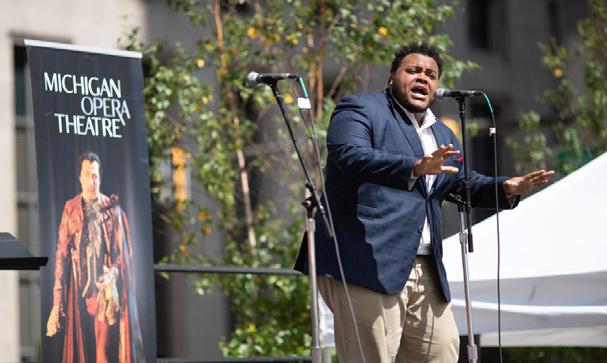
Historically, “auxiliary programming” might be understood as any kind of programming that takes place beyond the scope of the mainstage, encompassing both outreach and education. These events might take the form of pop-up performances at nightclubs (San Francisco Opera), site-specific performances in community gardens (Atlanta Opera), food trucks offering aria performances (Portland Opera), storybook hours for kids (Cincinnati Opera), and flash mobs (Opera Philadelphia). At Michigan Opera Theatre, past auxiliary initiatives have taken the form of programs like “Opera Goes to Church,” in which performances were offered at Detroit churches and the 2018-19 “Page to Stage” series offered at Detroit-metro public libraries. In general, these auxiliary events are seen as a way to facilitate the opera company’s relationship to the community and the programming is often shaped around mainstage season offerings. What makes both the appointment of Davóne Tines as Artist-in-Residence and the first part of MOT’s 2021-2022 season significant is that the model of mainstage/auxiliary; center/periphery has been inverted. In other words, the Detroit community is being foregrounded as key to enacting the mainstage. This new model might also be understood as exerting a kind of centrifugal force. The Detroit-based Act I of the 21-22 season (Cavalleria rusticana, Blue, and Bliss) creates a kind of community-driven momentum. As Act II (Frida, La bohème, and X: The Live and Times of Malcolm X) begins, we then return to our seats inside Music Hall and the Detroit Opera House and confront the problems and situations that occur outside in everyday life and now also onstage.
While this type of community-oriented turn is significant, opera is not an innocent ambassador. It is an art form with a complex history. Works staged outside of the opera house can reproduce some of the hierarchies and inequalities of the genre that take place in conventional spaces, and crucially, all companies must be aware of the types of spaces into which these performances are brought. What is so fascinating about Act I of the Michigan Opera Theatre’s 2021-2022 season, however, is that these
company choices are not just a form of opera for the COVID-19 era. Instead, they signify the ways operatic performance both in and out of the house could constitute the genre for the future. These works are ambitious: they perform a definition of opera that is civic minded, and that reflects the experience of everyday people. They have the potential to mobilize the realism of verismo from narrative into production. “My goal with any project I ever do is that I want every single person to recognize themselves in the work we create,” Yuval Sharon said to me in October 2020. Sharon was speaking of collaborative processes with other artists, but these words describe the civic orientation of Michigan Opera Theatre as well. In the process, we have arrived at a further word to describe those audiences, spectators, viewers, and patrons whom I mentioned at the beginning of this essay: collaborators. The definition of opera keeps expanding.
Note: This essay is indebted to the ideas of Joy Calico regarding operatic spectatorship and spectacle, Ryan Ebright’s work on Anthony Davis’s X: The Life and Times of Malcolm X and also amplification in the opera house, and finally, the writings of David Levin and Roger Parker on operatic ontologies.
Megan Steigerwald Ille is an Assistant Professor of Musicology, Educator, at the College-Conservatory of Music, University of Cincinnati. Her research on the twenty-first century U.S.-American opera industry considers the intersections of operatic, popular, and digital cultures. She has published articles in the Journal of the Society for American Music, The Opera Quarterly, and Sound, Stage, Screen. Her monograph-in-progress, Opera for Everyone: Experimenting with American Opera in the Digital Age, is an ethnographic study of the experimental opera company, The Industry.
Wayne S. Brown President and Chief Executive Officer
Yuval Sharon
Gary L. Wasserman Artistic Director
Christine Goerke
Associate Artistic Director
Maxwell Bolton, Director of Marketing and Communications
Alexis Means, Director of Operations and Patron Experience
Rock Monroe, Director of Safety and Security, DOH and DOHPC
Angela Nelson-Heesch, Director of Development
David W. Osborne, Director of Production
Andrea Scobie, Director of Education
Ataul Usman, Director of Human Resources
Patricia Walker, Chief Administrative Officer
Arthur White, Director of External Affairs
William Austin, Executive Assistant
Timothy Lentz, Archivist and Director, Allesee Dance and Opera Resource Library
Laura Nealssohn, Board Liason
Alexandra Niforos, Artistic Assistant
Bryce Rudder, Senior Librarian, Allesee Dance and Opera Resource Library
Zach Suchanek, Human Resources Assistant
Chelsea Kotula, Associate Director of Development, Institutional Giving
Christy Gray, Development Administrator
Maery Simmons, Assistant Manager – CRM Operations
Michael Hauser, Marketing Manager
Jamilah Jackson, Communications and Media Relations Manager
Jon Rosemond, Marketing Operation Associate
Evan Carr, Patron Services Associate, Ticketing
Mark Vondrak, Associate Director of Community Programs
SOPRANO: Clodagh Earls, Nicole Joseph
MEZZO-SOPRANOS: Olivia Johnson, Kaswanna Kanyinda
TENOR: David Moan
BARITONES: Branden C.S. Hood
PIANISTS: Taylor Flowers, Joseph Jackson, Alvin Waddles
Suzanne Mallare Acton, Director
Dianna Hochella, Assistant Director, Principal Chorus Conductor
Jane Panikkar, Preparatory Chorus
Conductor
Twannette Nash, Chorus Administrator
Joseph Jackson, Principal Chorus
Accompanist
Maria Cimarelli, Preparatory Chorus
Accompanist
Emily Crombez, Theory Teacher
Jon Teeuwissen, Artistic Advisor to Dance
Kim Smith, Dance Coordinator
Kimberley Burgess, Rita Winters, Accountants
Kathy Kercorian, CFO
Kimberly Reaves, Controller
Juan Benavides, Building Engineer
Jesse Carter, Senior Building Engineer
Dennis Wells, Facilities Manager
Holly Clement, Events Manager
Tiiko Reese-Douglas, Events Assistant
Jennifer Consiglio-George, Events
Kenneth Blue, Officer
Dasaian Dupree, Officer
A.M. Hightower, Officer
Sullivan Horton, Officer
Lt. Lorraine Monroe, Supervisor
Demetrius Newbold, Officer
Elizabeth Anderson, Production Coordinator and Artistic Administrator
Kathleen Bennett, Production Administrator
Nan Luchini, Stage Manager
Rochelle Clark, Assistant Stage Manager
Suzanne Mallare Acton, Assistant
Music Director and Chorus Master
Molly Hughes, Orchestra Personnel Manager
Jean Posekany, Orchestra Librarian
Keun-A Lee, Jean Schneider, Repetiteurs
Daniel T. Brinker, Technical Director
Monika Essen, Property Master and Scenic Artist
Heather DeFauw, Assistant Lighting Designer and Assistant Technical Director
Dee Dorsey, Supertitle Operator
Suzanne M. Hanna, Costume Director
Emily Christianson, Wardrobe Supervisor
Susan A. Fox, First Hand
Maureen Abele, Mary Ellen Shuffett, Patricia Sova, Stitchers
Erika Broderdorf
John Kinsora, Head Carpenter
Frederick Graham, Jr. Head Electrician
Pat McGee, Head Propertyman
Chris Baker, Head of Sound
Mary Ellen Shuffett, Head of Wardrobe
Robert Martin, Head Flyman
Gary Gilmore, Production Electrician
IATSE Local #38 Stage Crew
IATSE Local #786 Wardrobe

